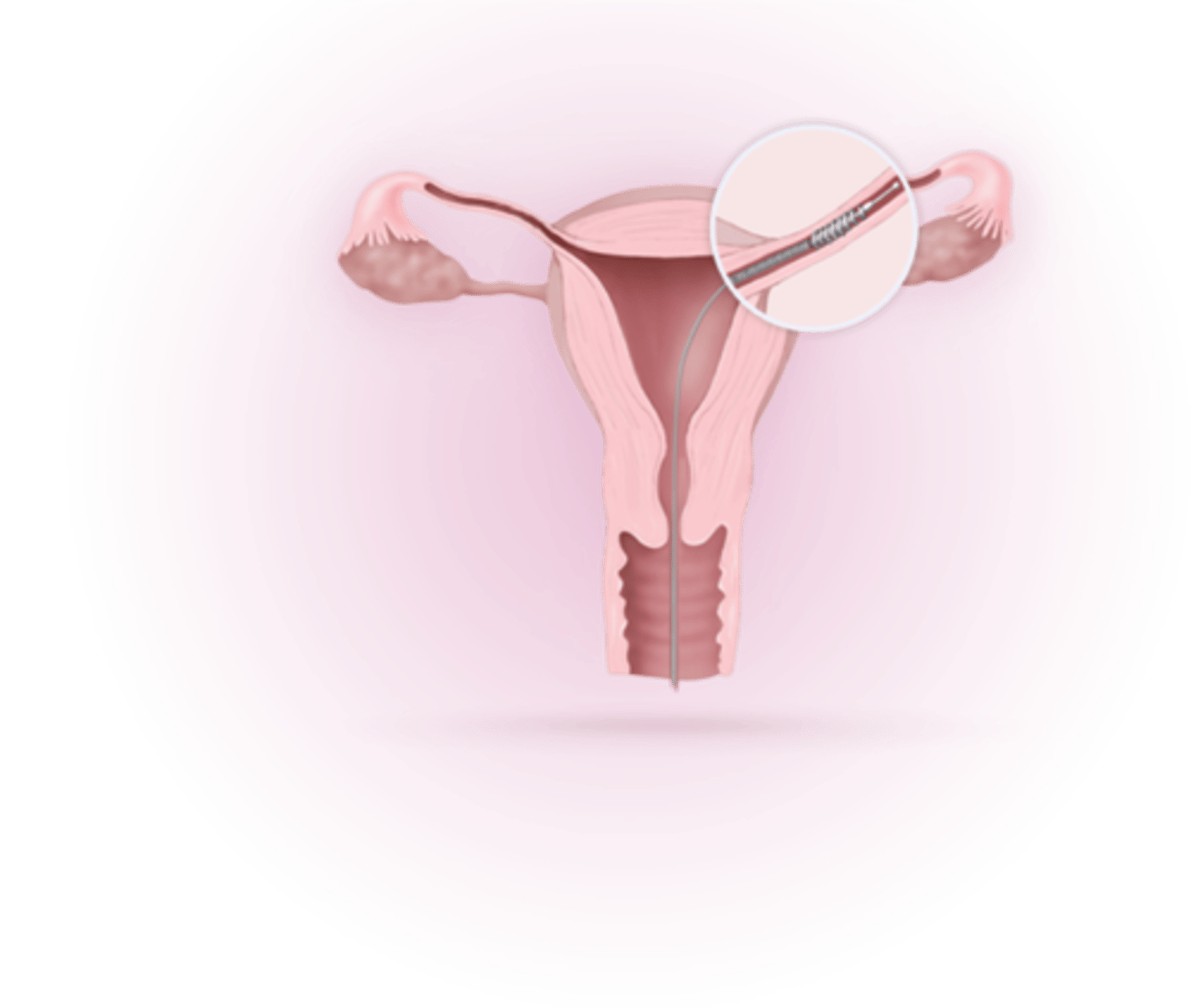Lab 16: Gestation and Contraception
1/52
There's no tags or description
Looks like no tags are added yet.
Name | Mastery | Learn | Test | Matching | Spaced | Call with Kai |
|---|
No analytics yet
Send a link to your students to track their progress
53 Terms
Sperm
male gamete
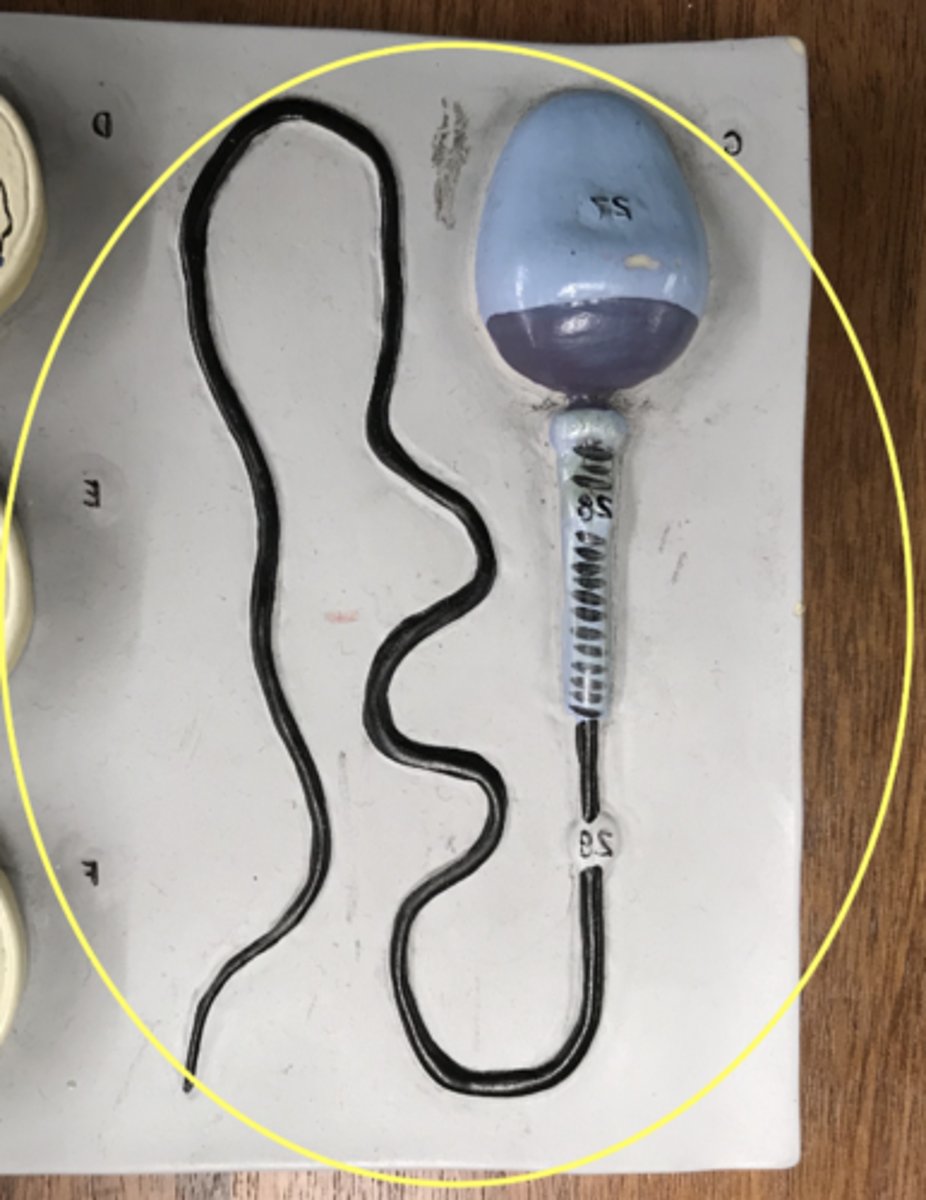
Head of sperm
name this region
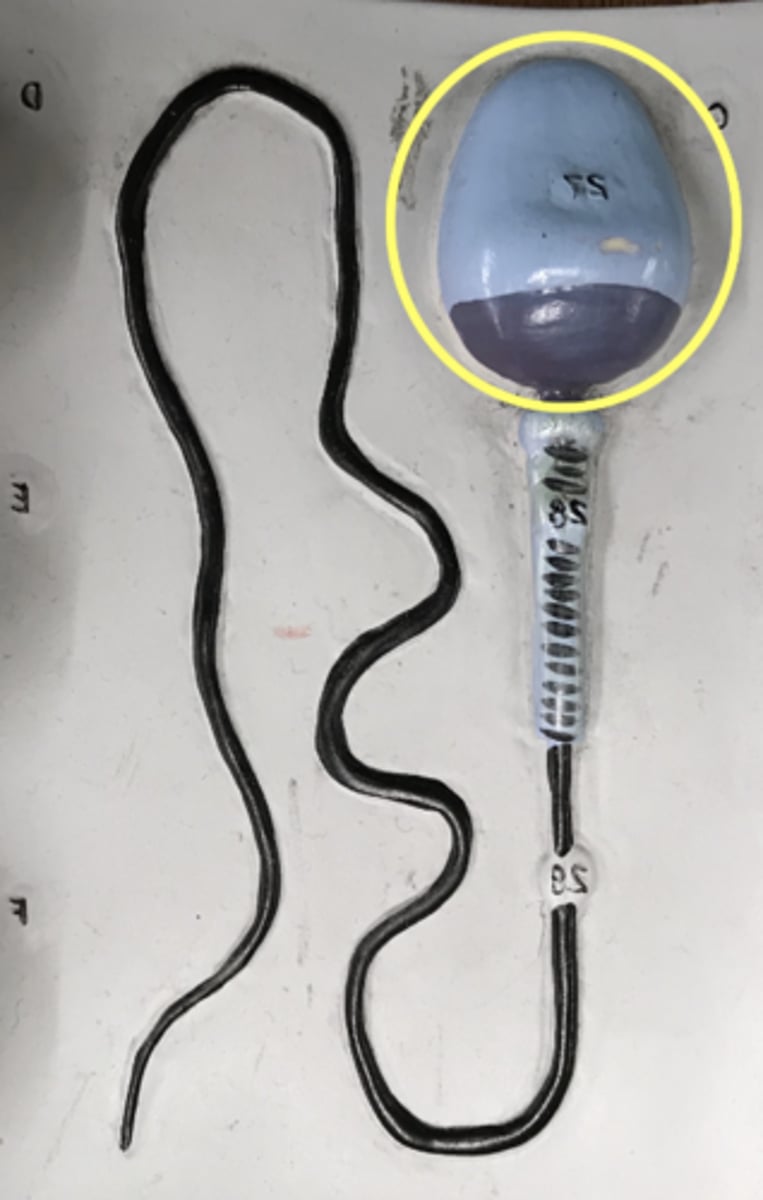
Neck of sperm
Name this region
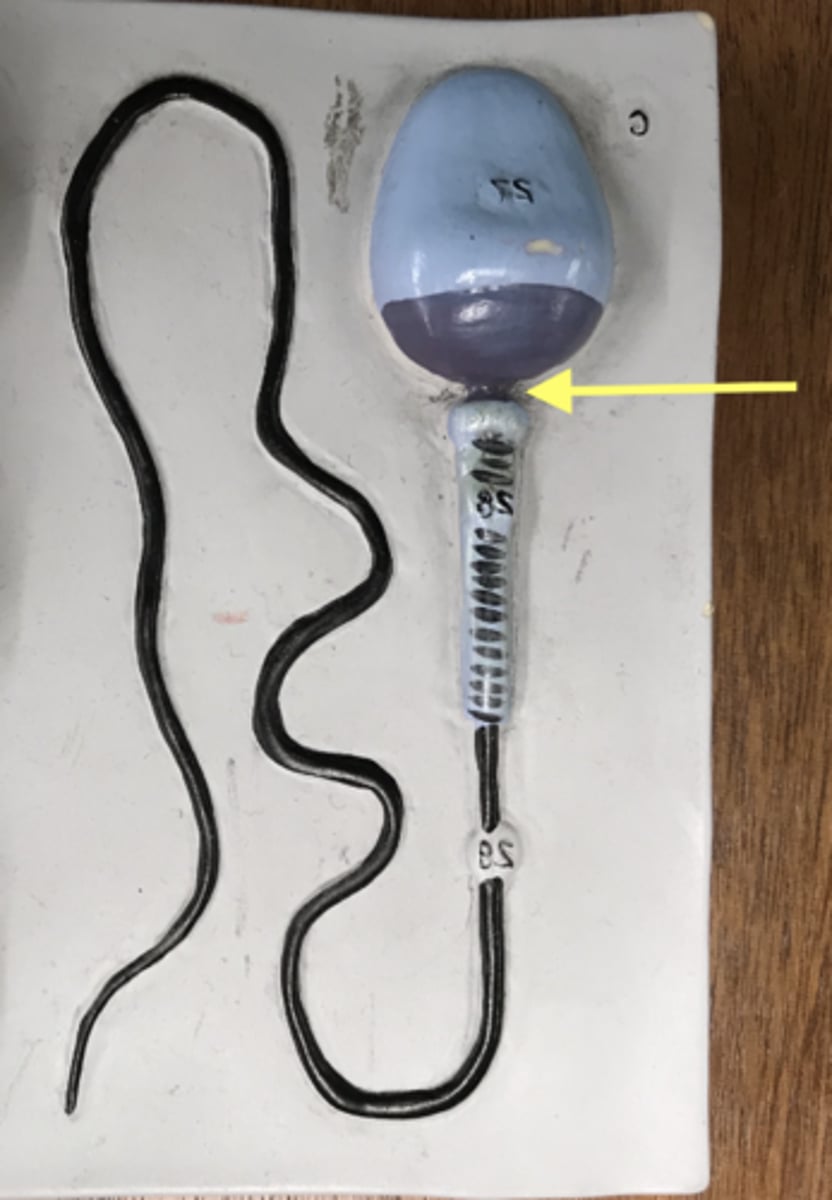
Middle piece of sperm
name this region
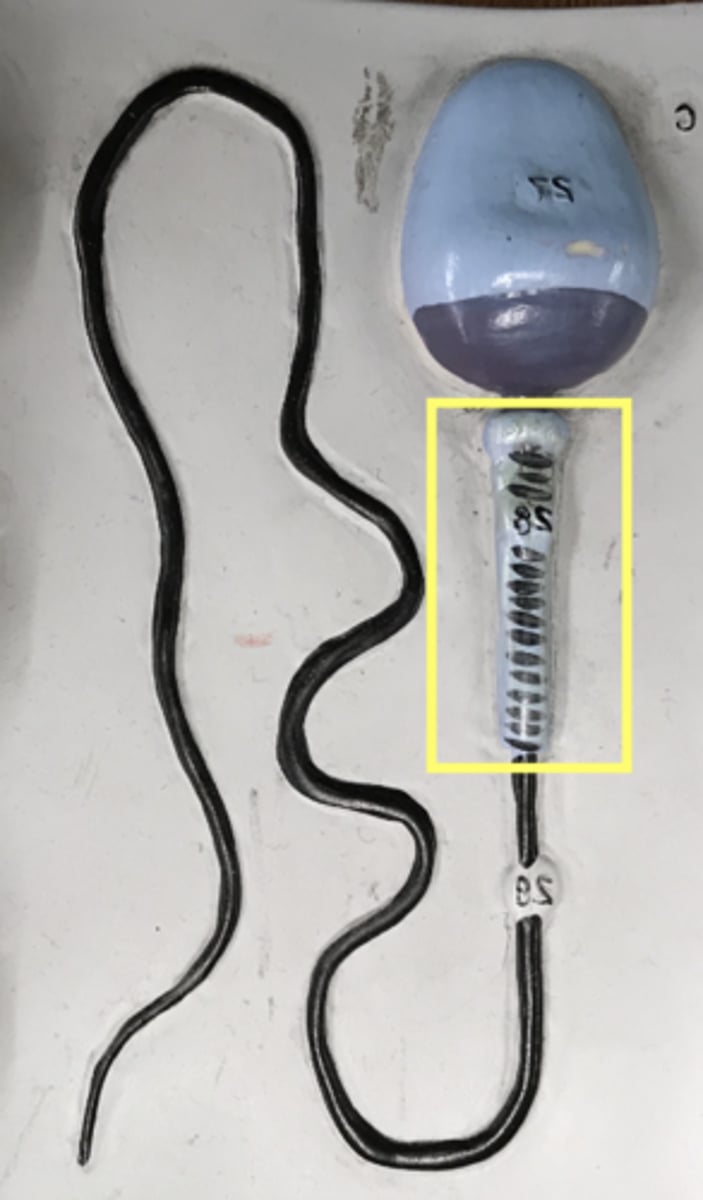
Tail of Sperm
name this region
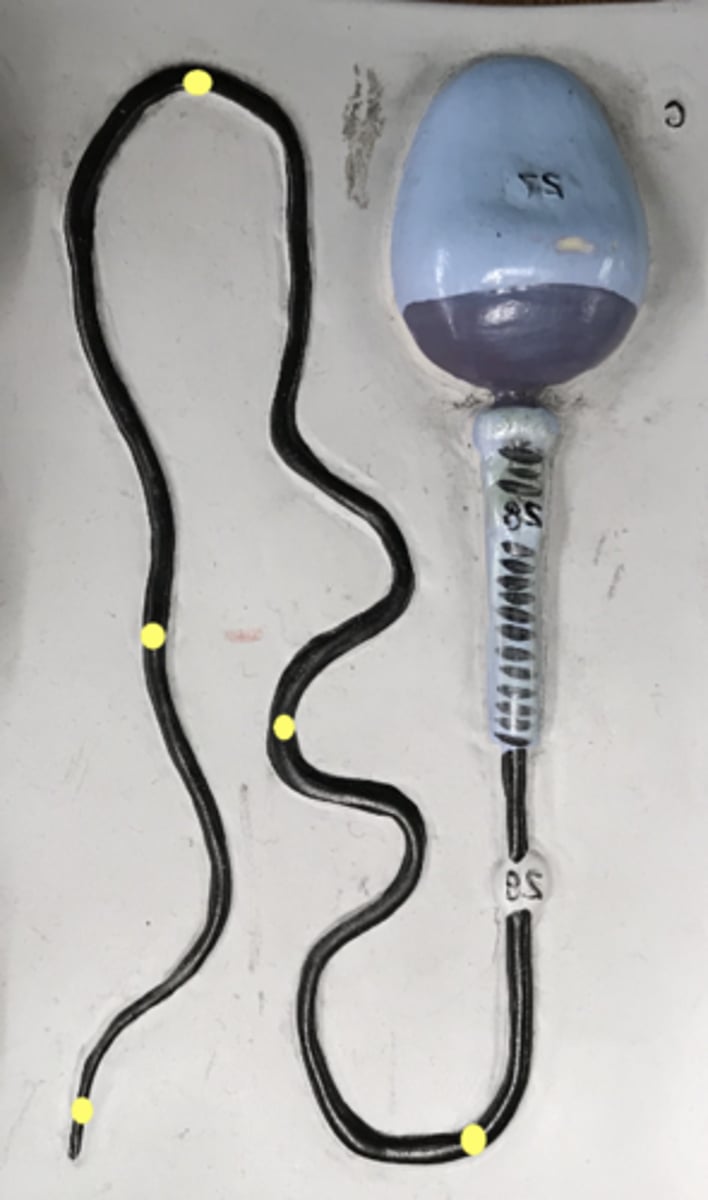
Oocyte
Female gamete
Secondary oocyte
Once in the uterine tube after fertilization. Secondary oocyte is what becomes fertilized.
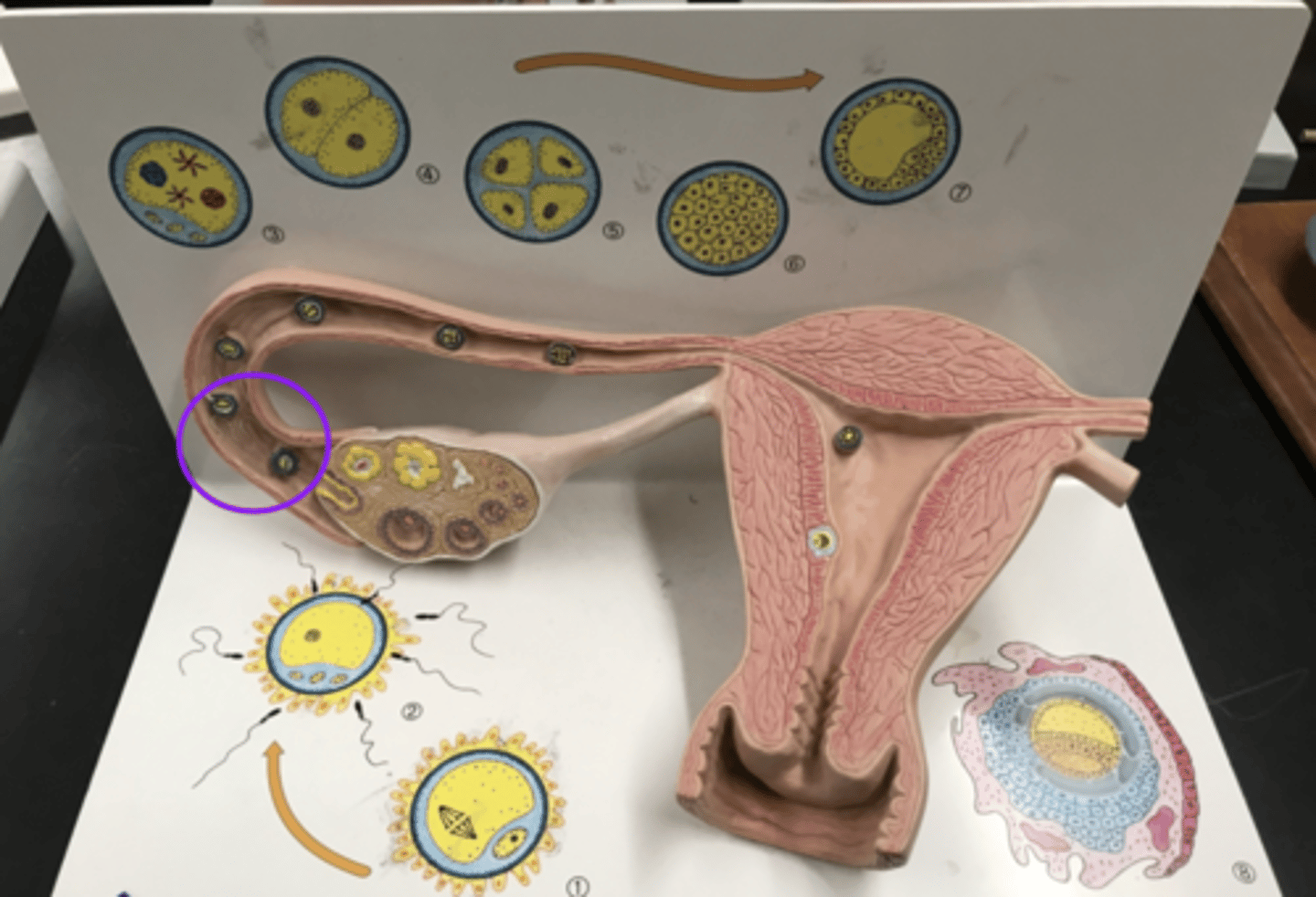
Corona radiata
Layer of cells that surrounds the oocyte when it is ovulated that protect the egg
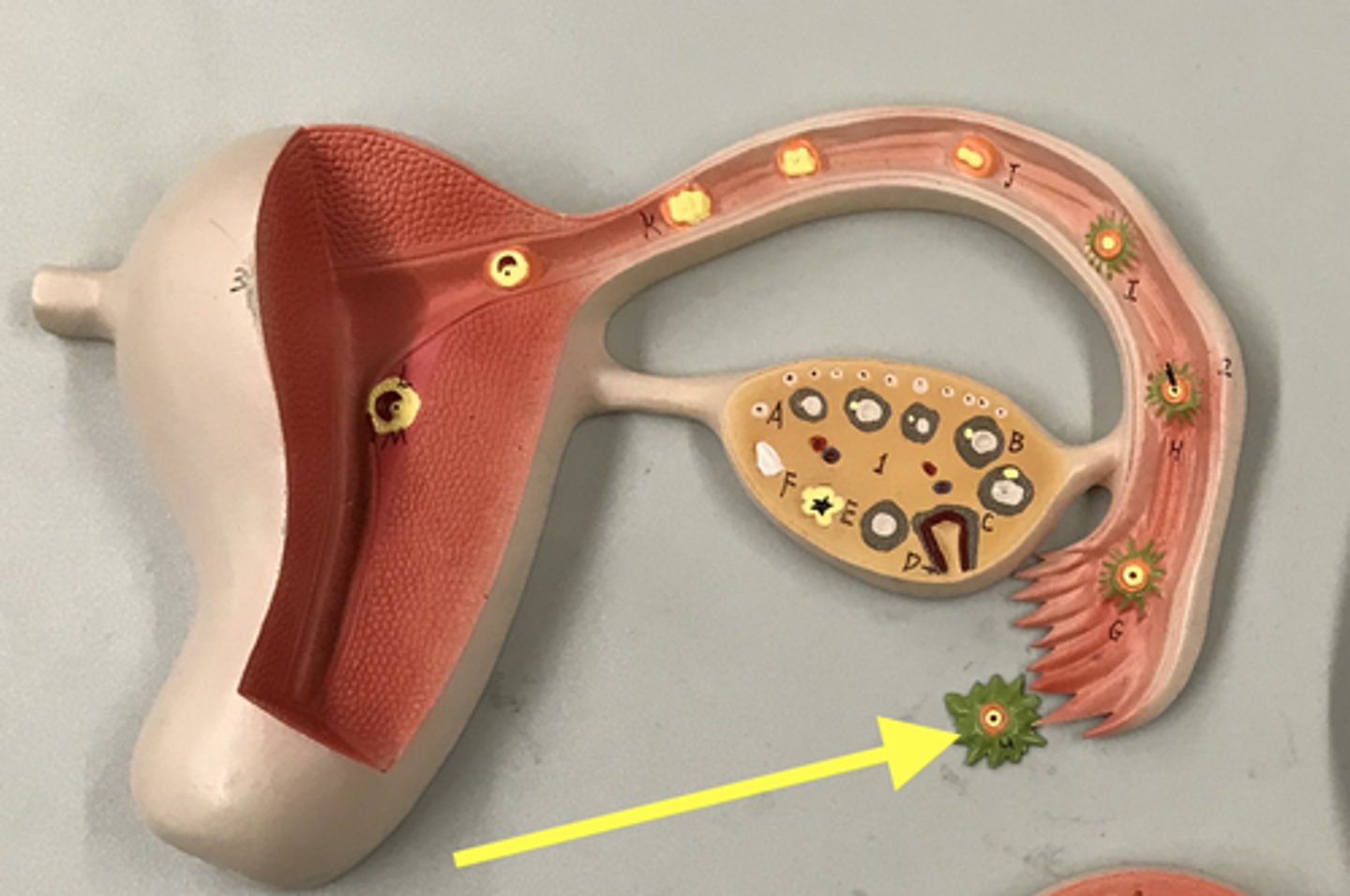
Corpus luteum
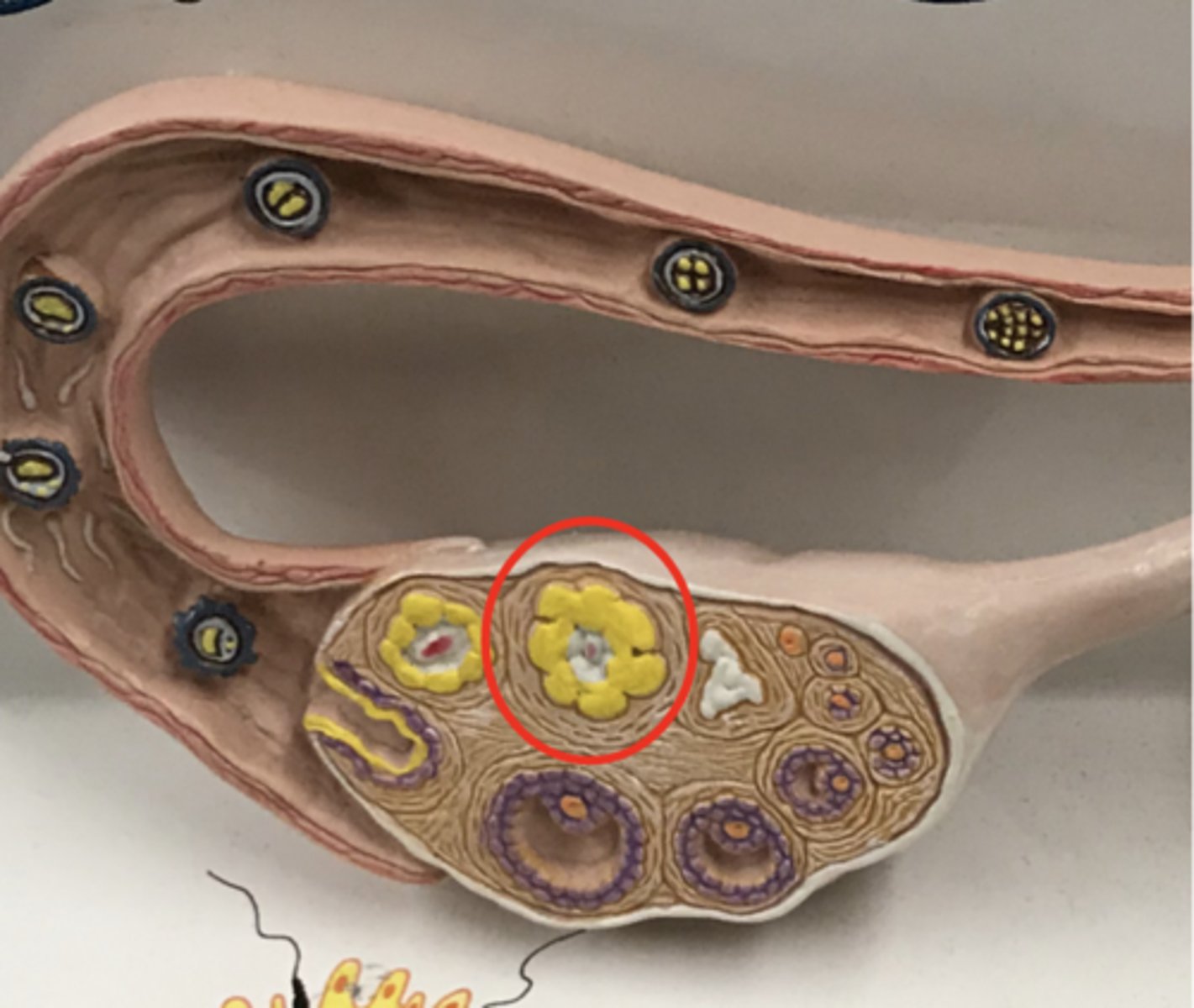
Blastomere
2, 4, 8 cell stages
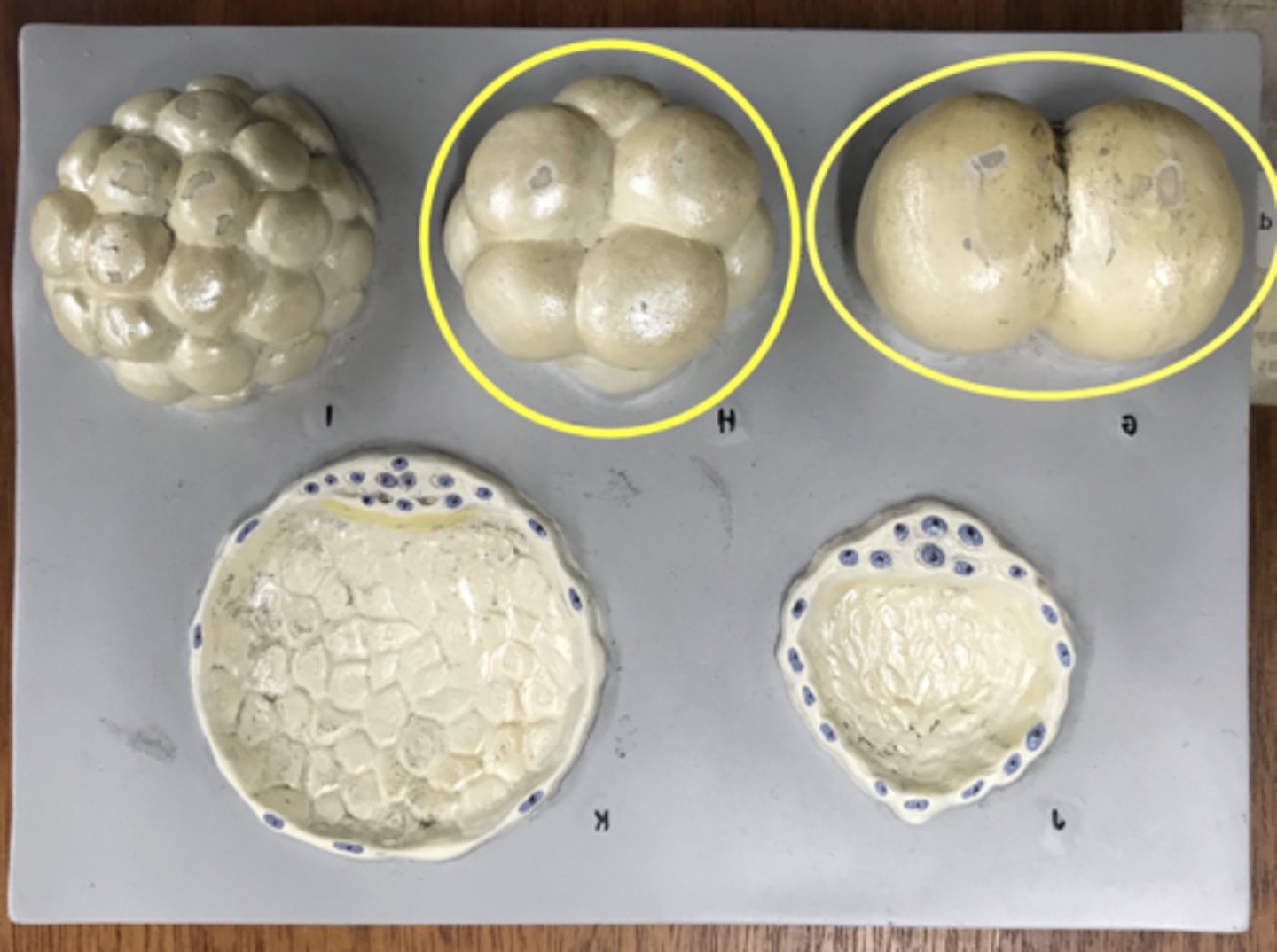
Morula
When the cell begins to differentiate
16 or more cells
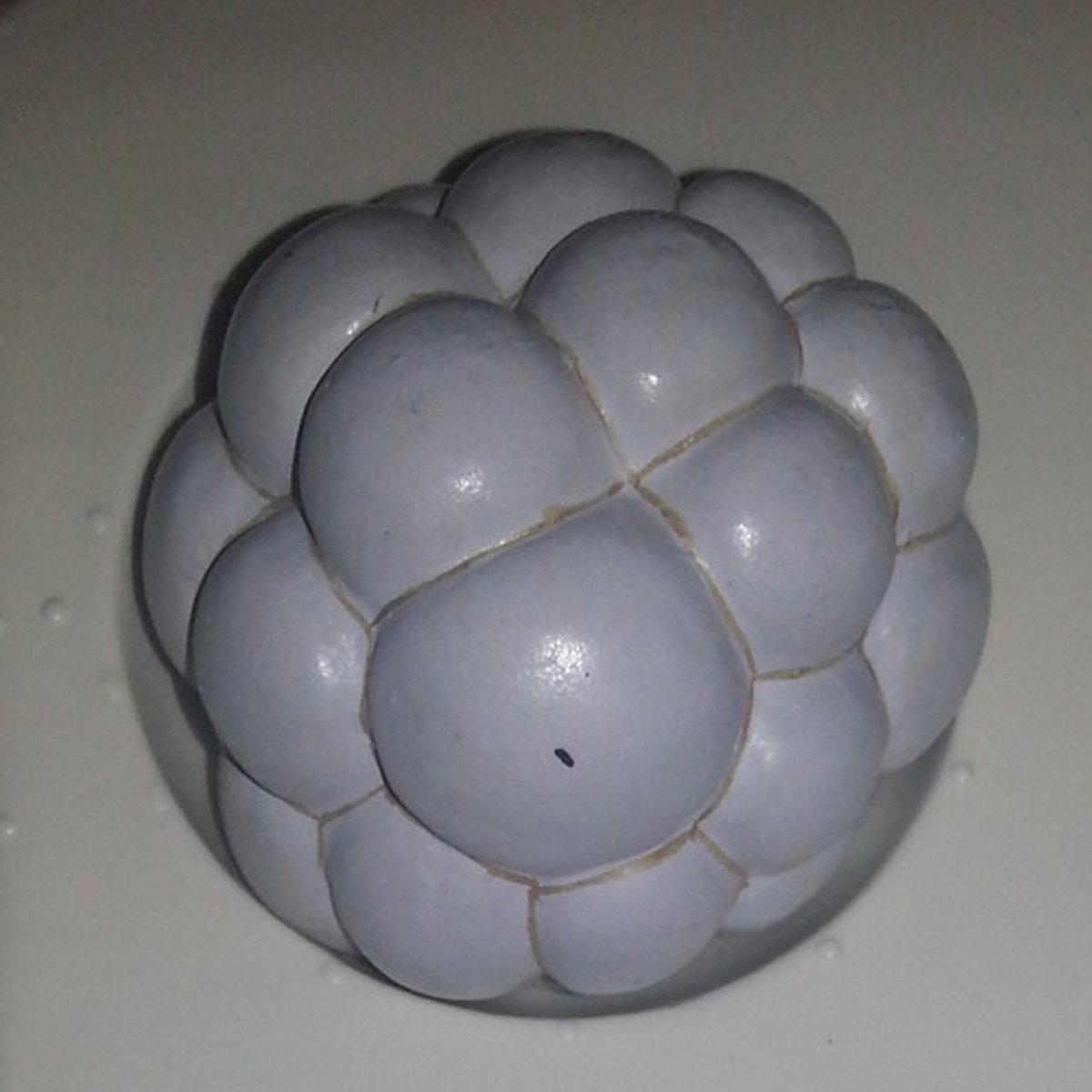
Blastocyst
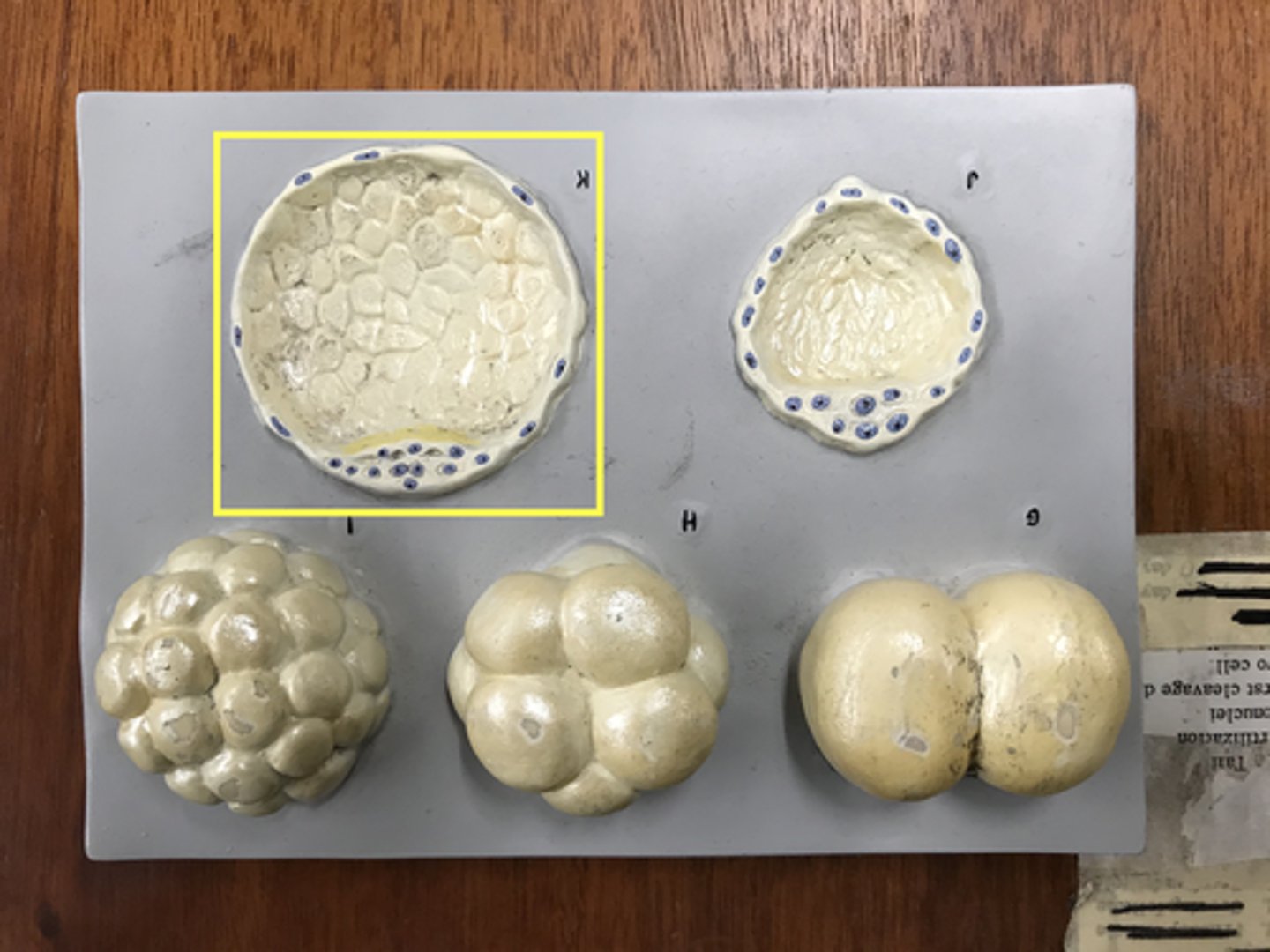
Blastocoele
The space or cavity inside the blastocyst
Name this SPACE
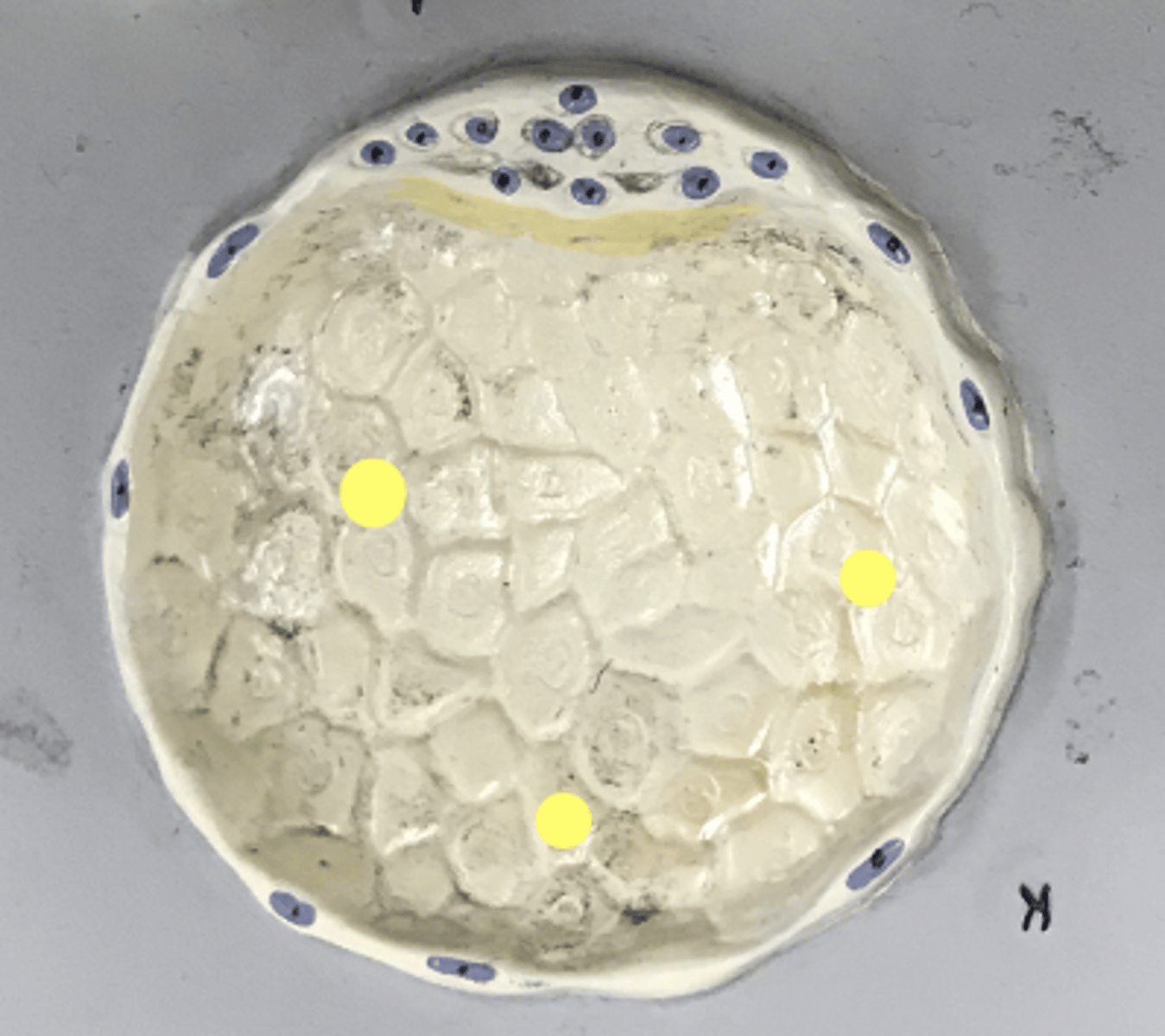
Trophoblast
- Outer layer of the blastocyst
- One single layer thick outer layer
- will become the placenta
Name this LAYER

Inner cell mass
Cells on the inside of the blastocyst
- Will become the fetus
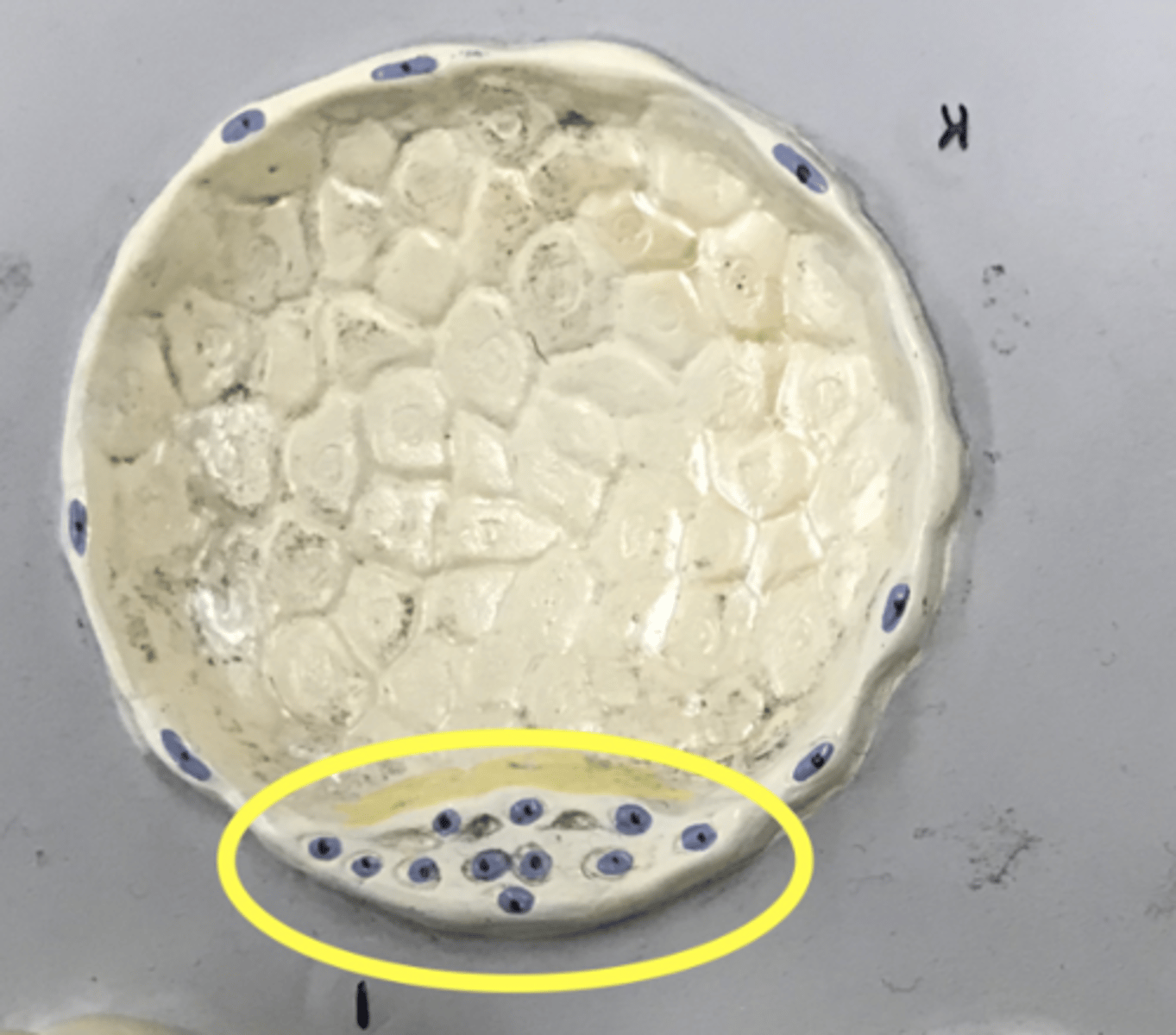
First trimester
The first 13 weeks after the last menstrual period
12 weeks
- Rudimentary organ systems have formed
- Fetus is about 3 inches long
- Fetus weighs about 0.5 lbs
Second trimester
Weeks 14-26 after the last menstrual period
16-20 weeks
Fetal movements become perceptible around..........
25 weeks
- Fetus is about 9 inches long
-Fetus weighs about 1.4 lbs
-Eyelids open
Third trimester
Weeks 27-40 after the last menstrual period
38 weeks
- Average weight is about 7 lbs
- Average length is about 14 inches
Pre-term baby
Refers to babies born prior to 37 weeks gestation
Term baby
Refers to babies born between 37-40 weeks gestation
Post-term baby
Refers to babies born at greater than 40 weeks gestation
Yolk sac
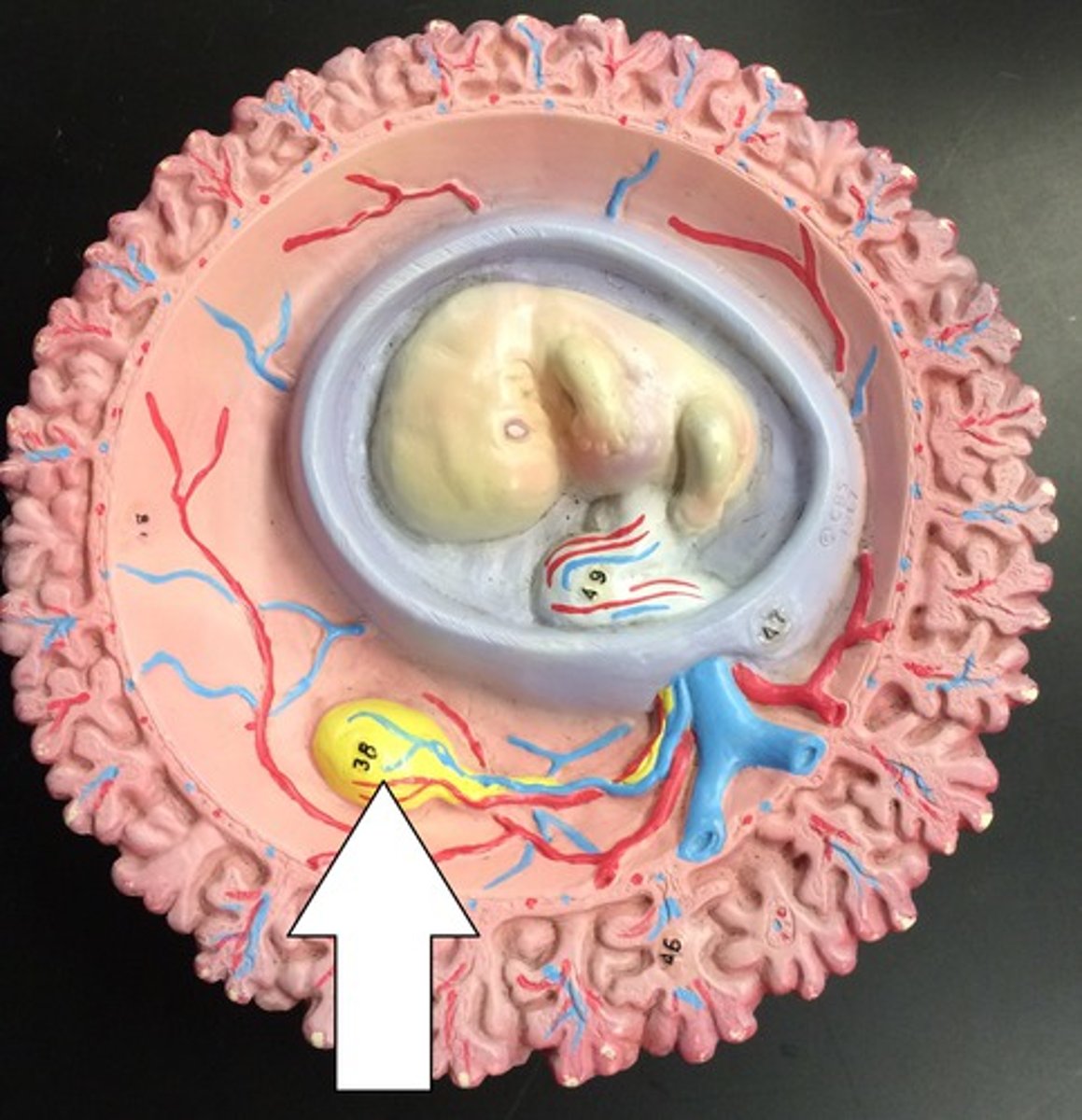
Placenta
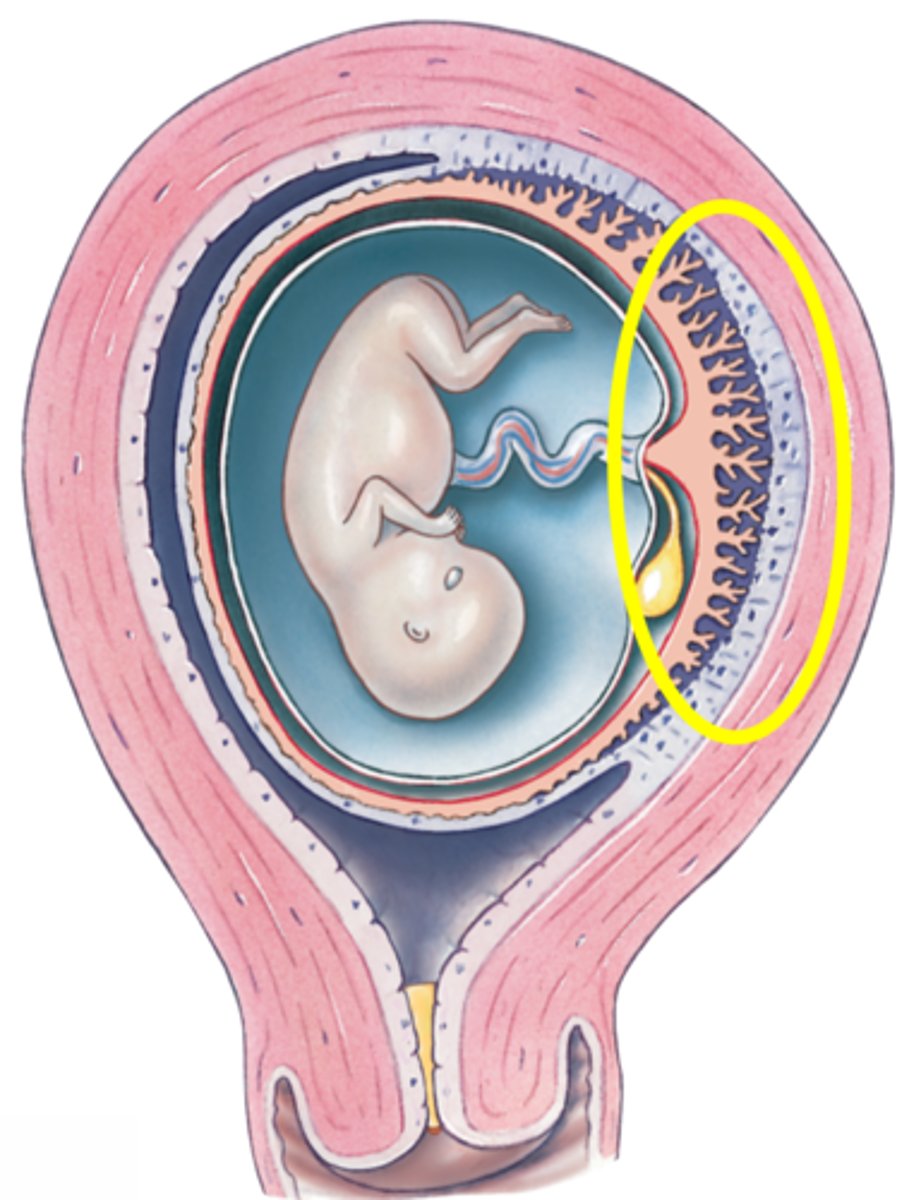
Umbilical cord
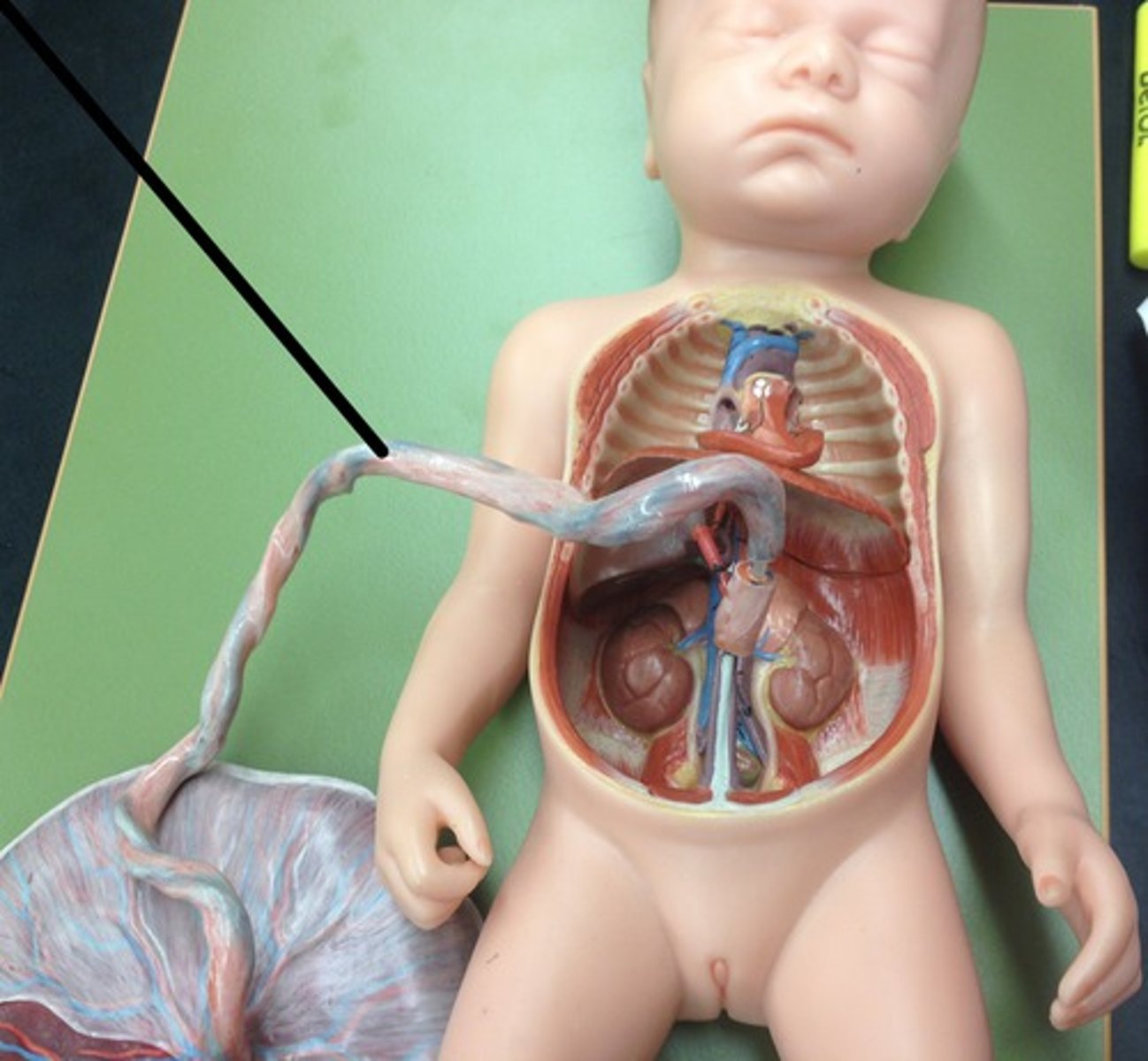
Umbilical arteries (2)
carry deoxygenated blood from the fetus to the placenta
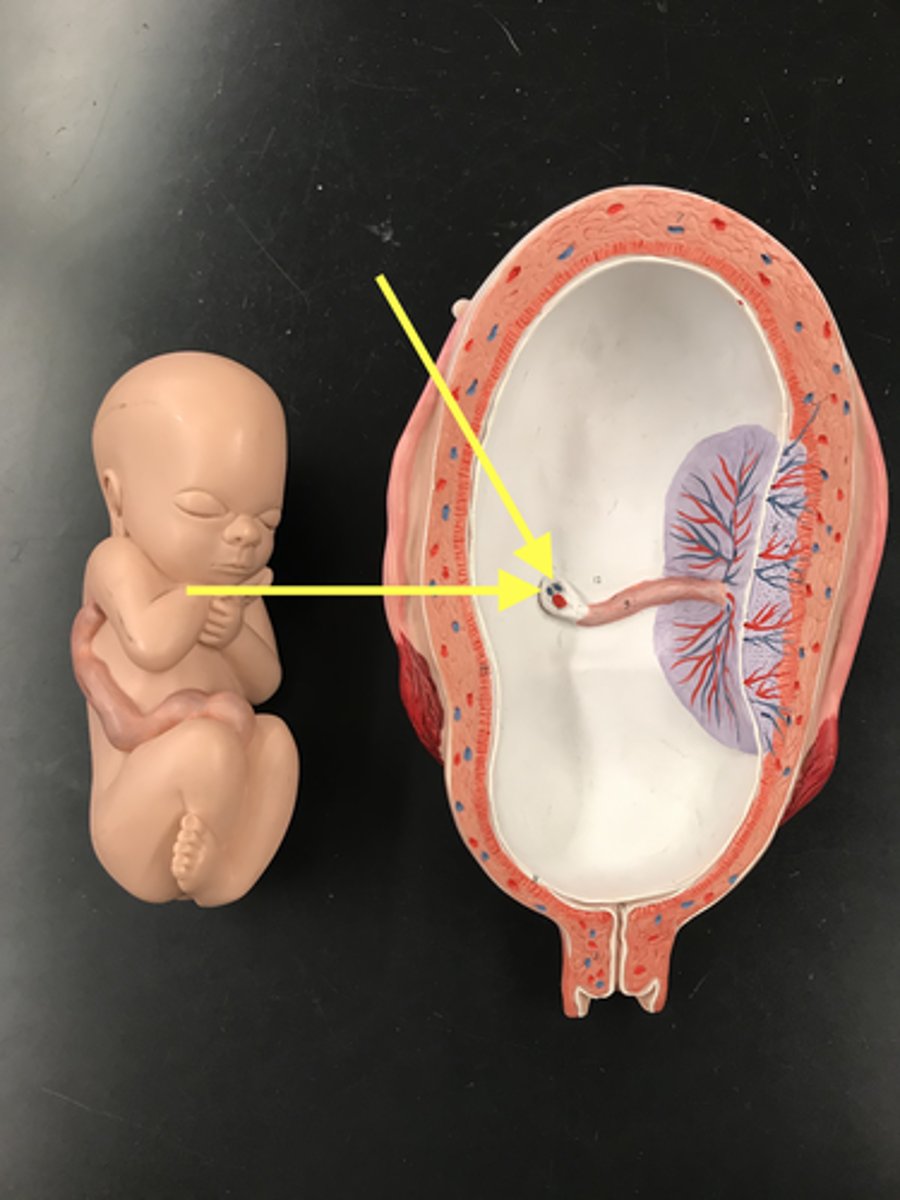
Umbilical vein (1)
delivers oxygenated blood from the placenta to the fetus
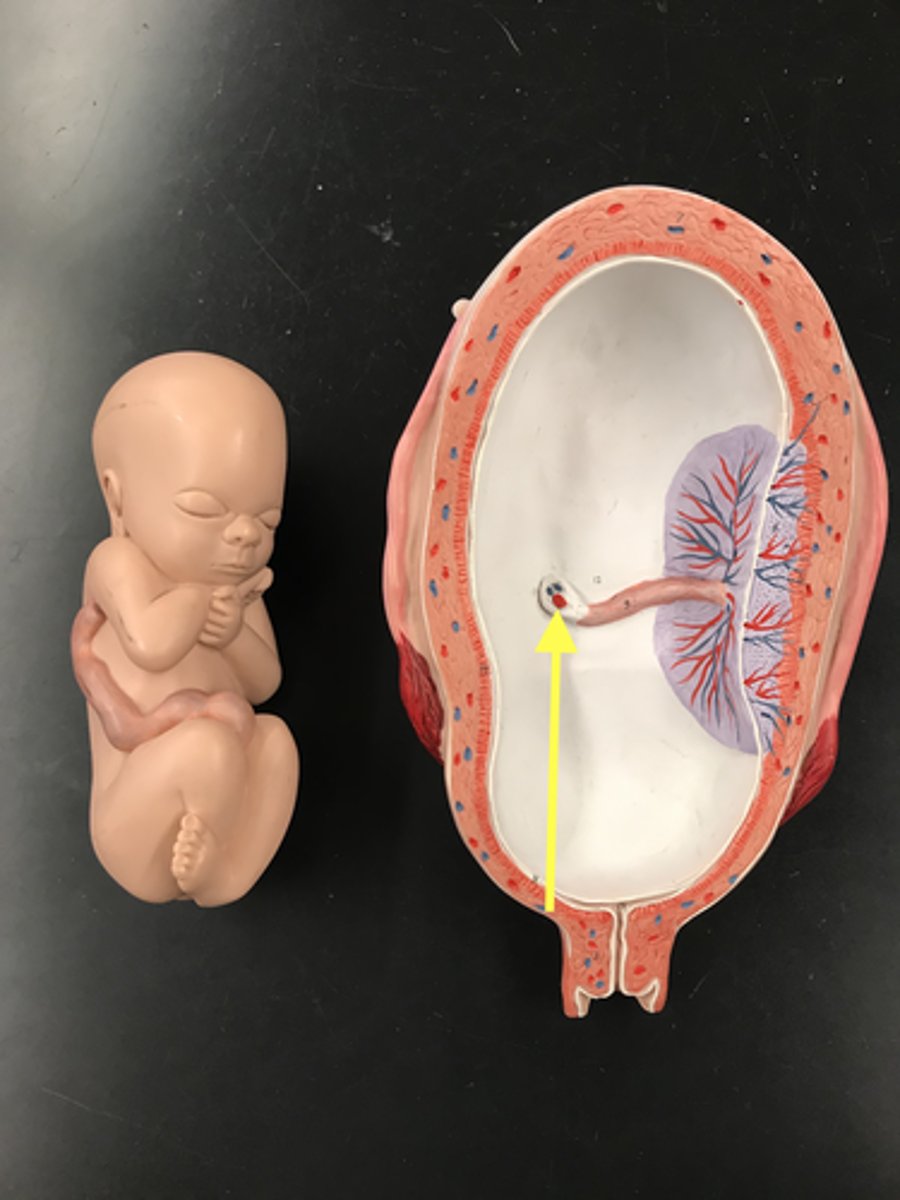
Amniotic cavity
name this SPACE

Amnion
name this LAYER
(white)
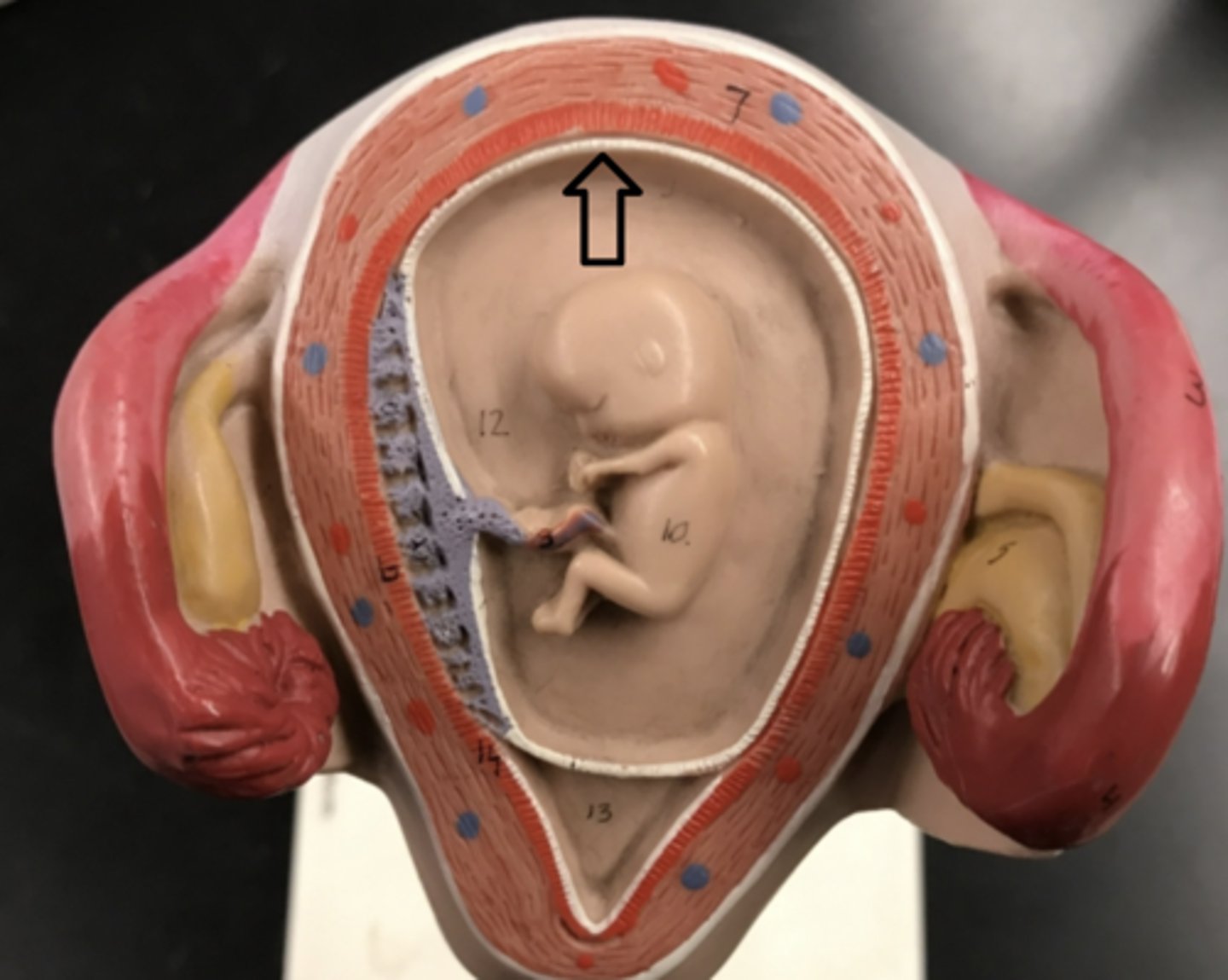
Chorion
name this LAYER
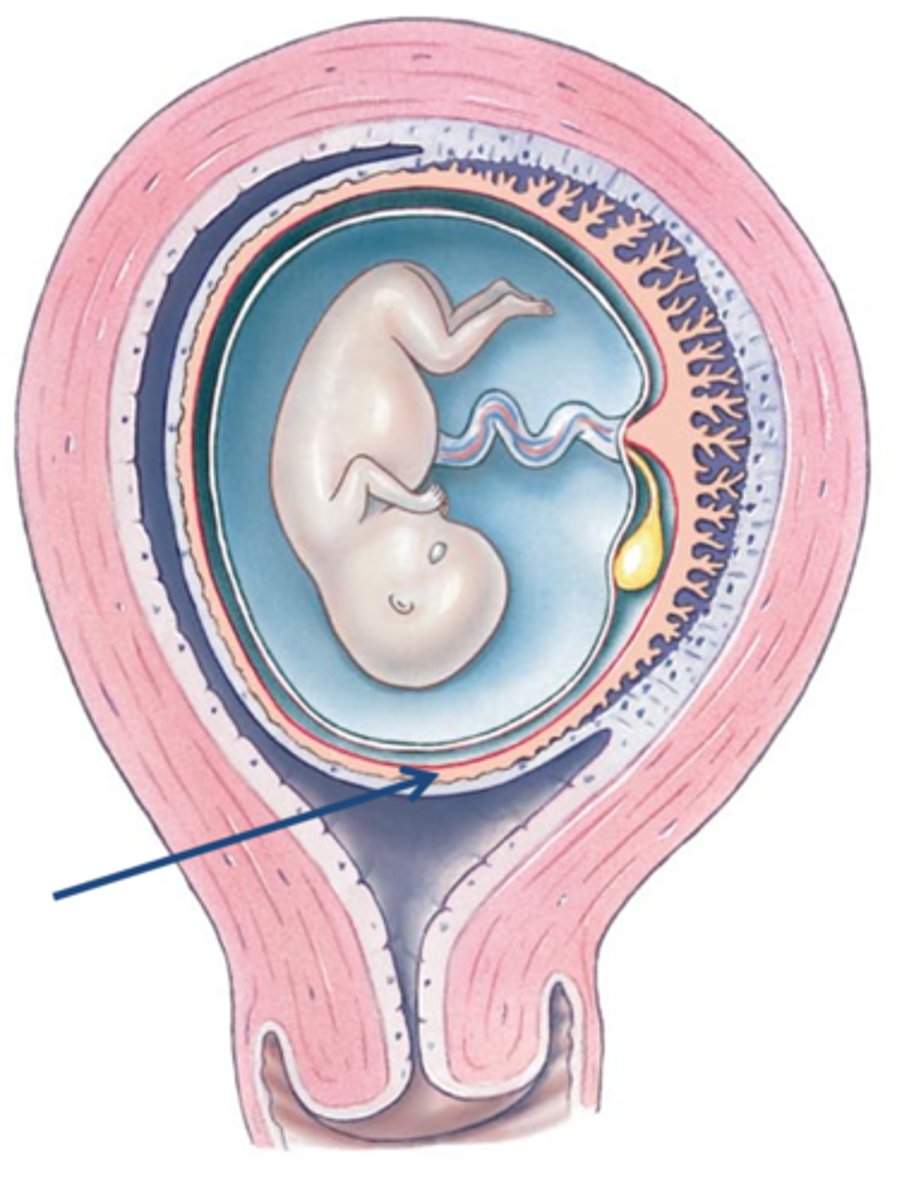
Chorionic villi
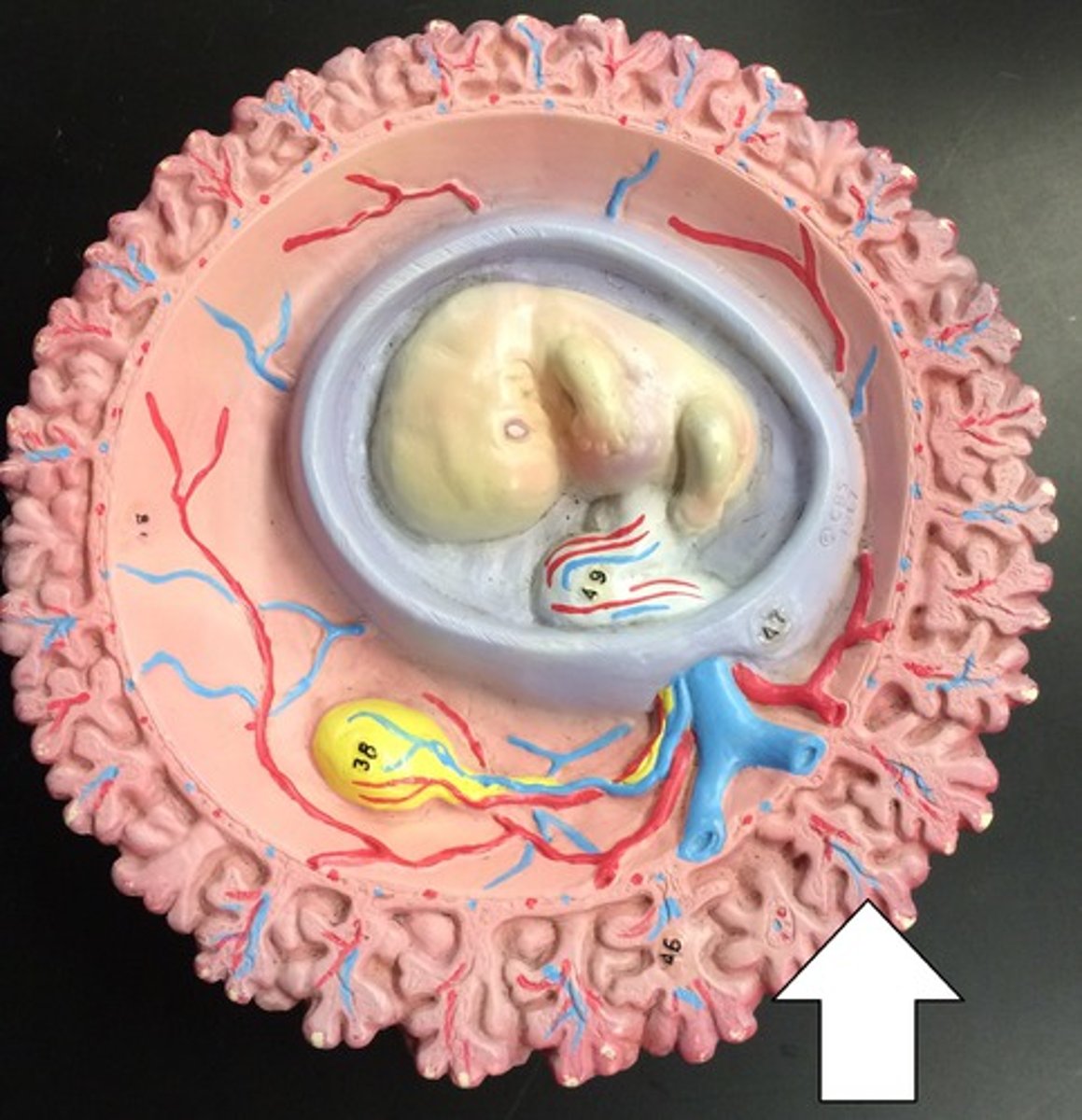
Decidua capsularis
Only touches the baby
C
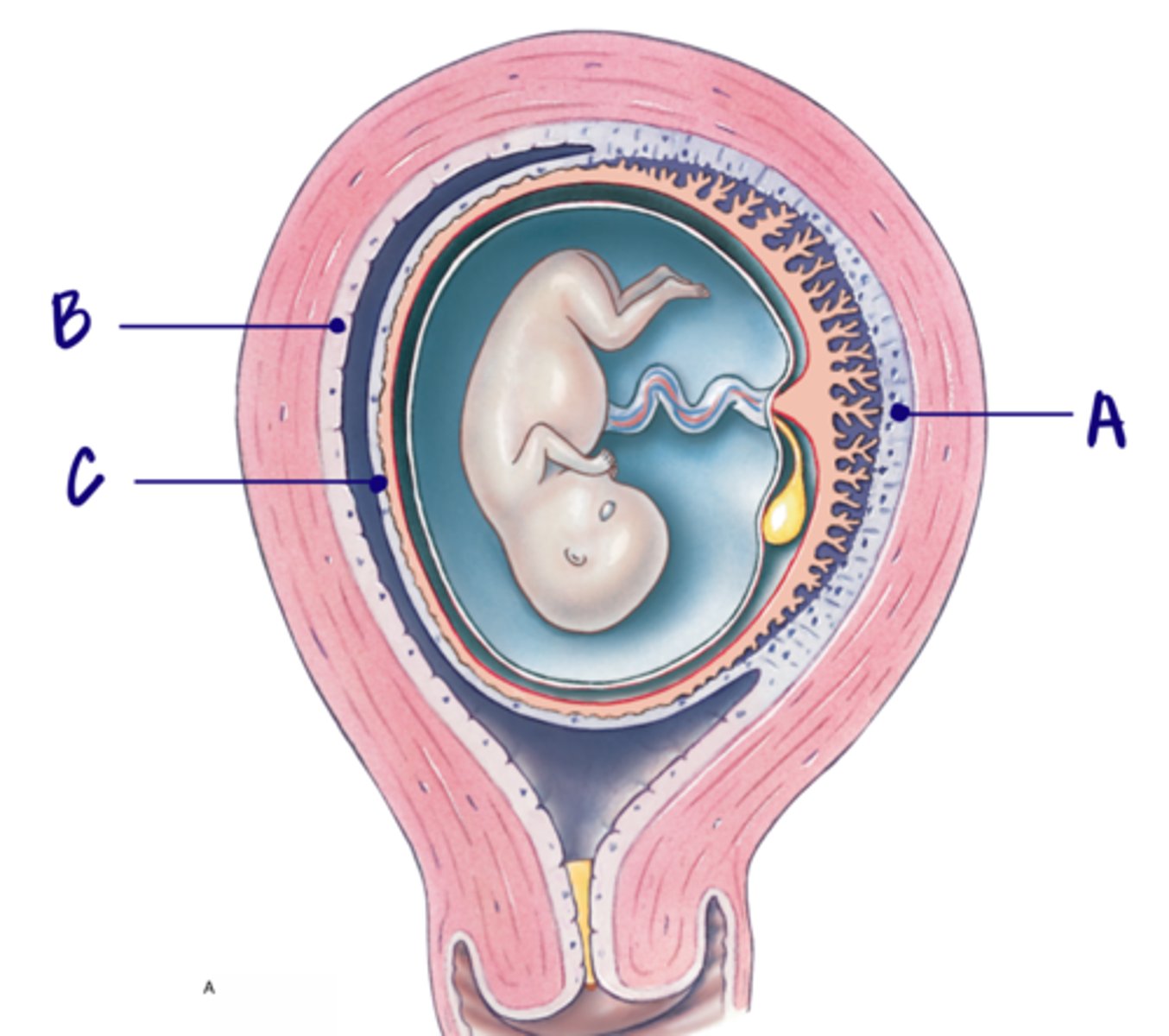
Decidua parietalis
Only touches the mother
B
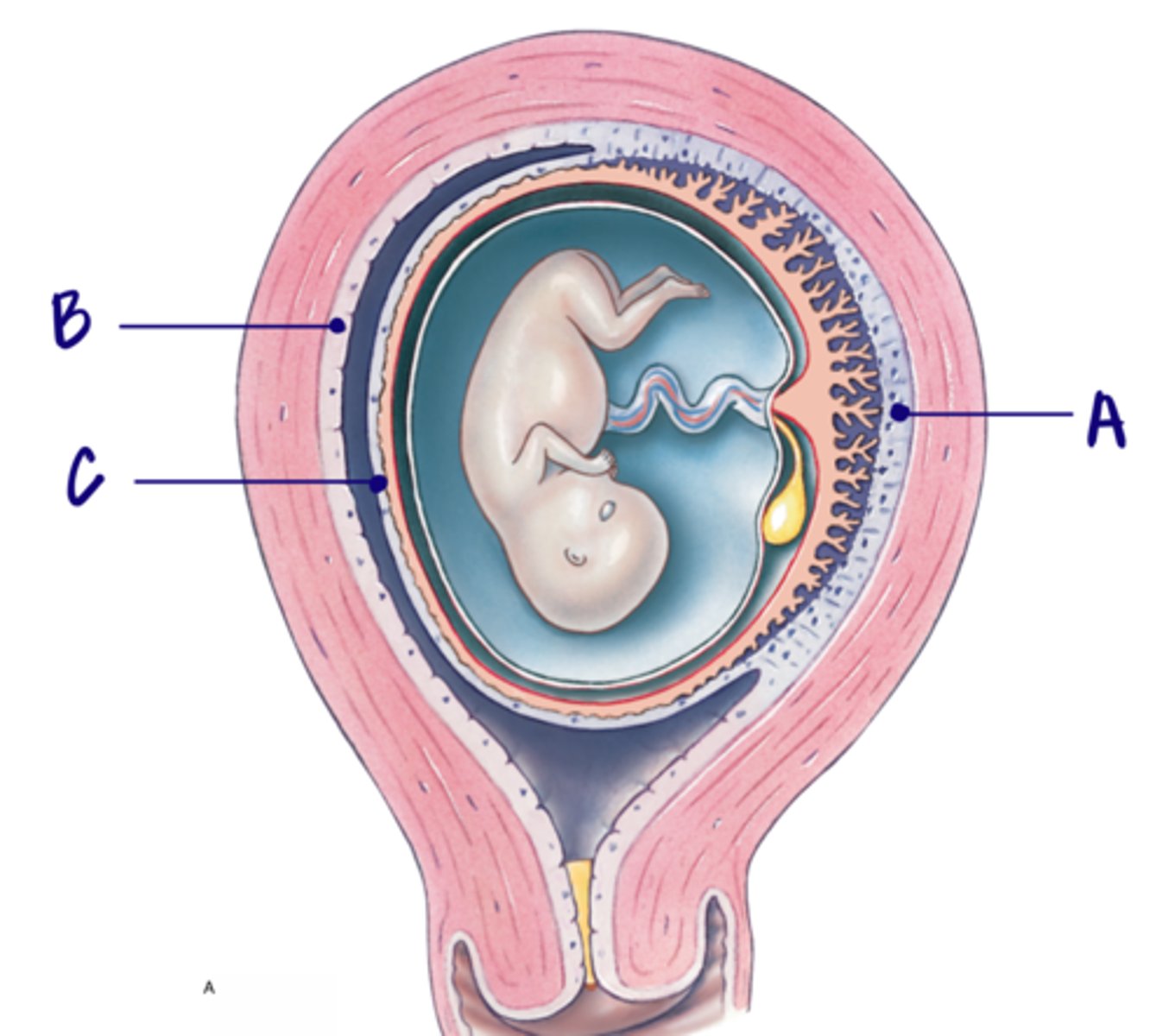
Decidua basalis
Touches both the baby and the mother
A
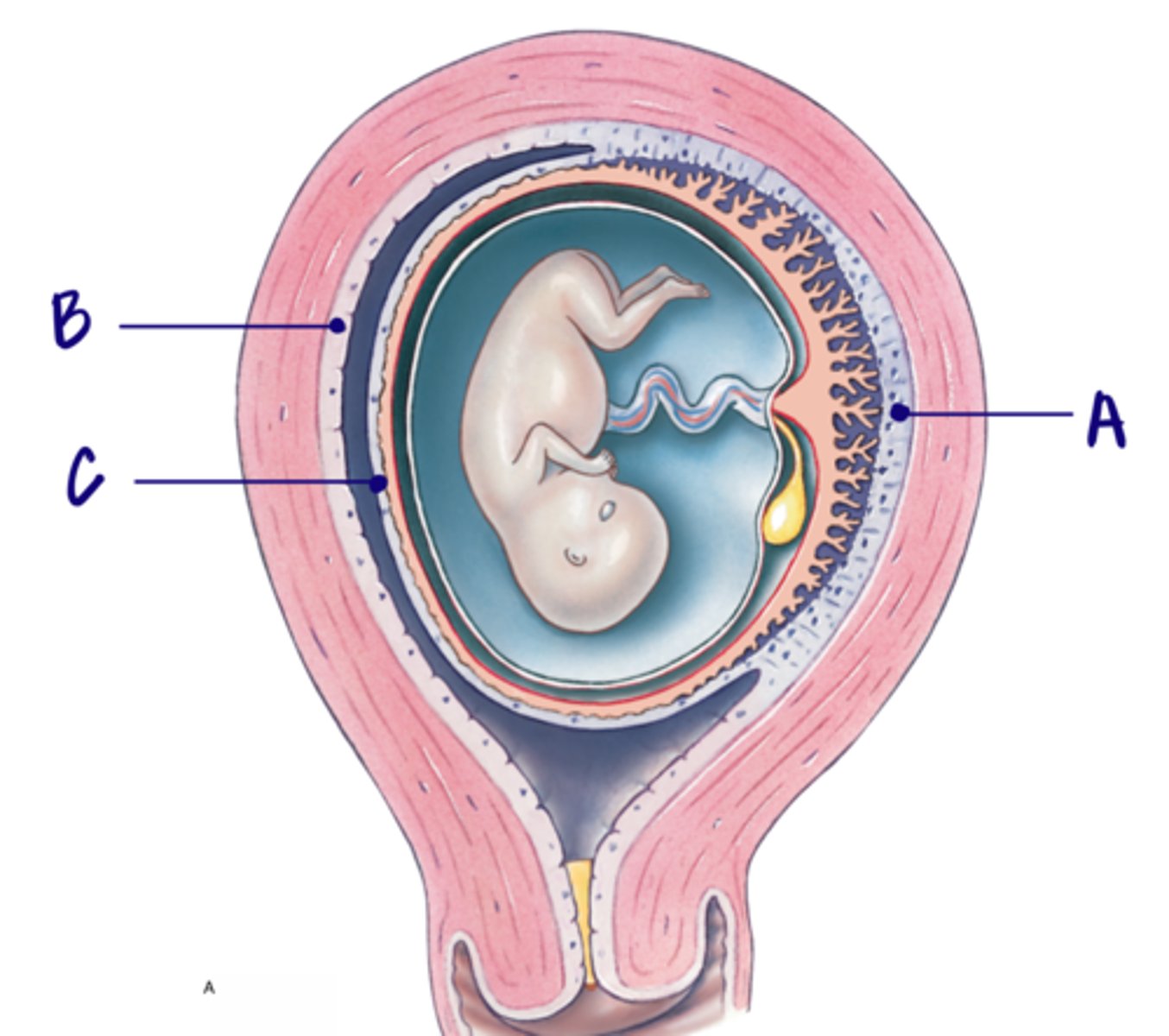
Male condom
Lamb skin condoms do not protect against infections
-Non-hormonal
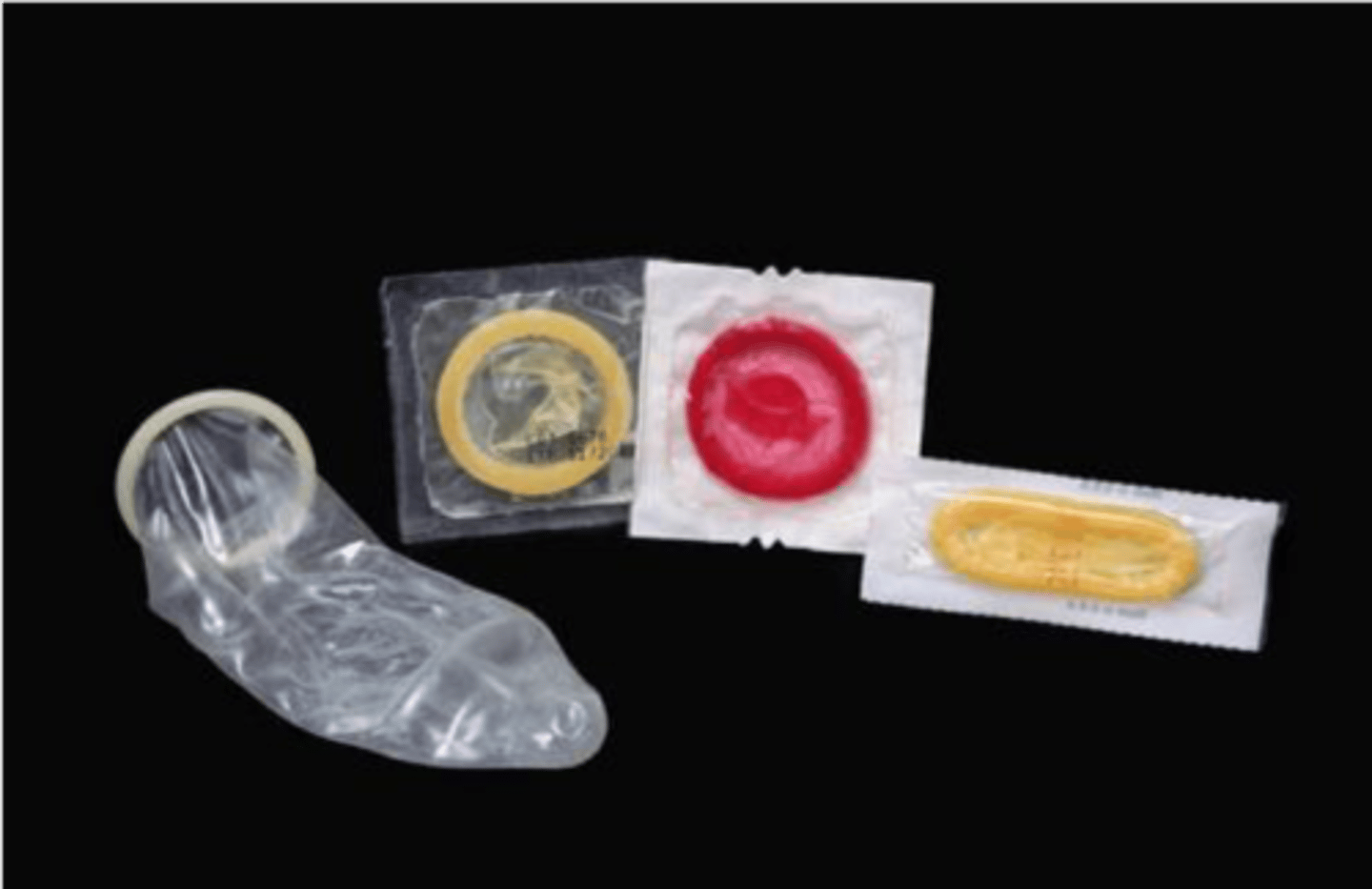
Female condom
Has a closed end and open end
-Non-hormonal
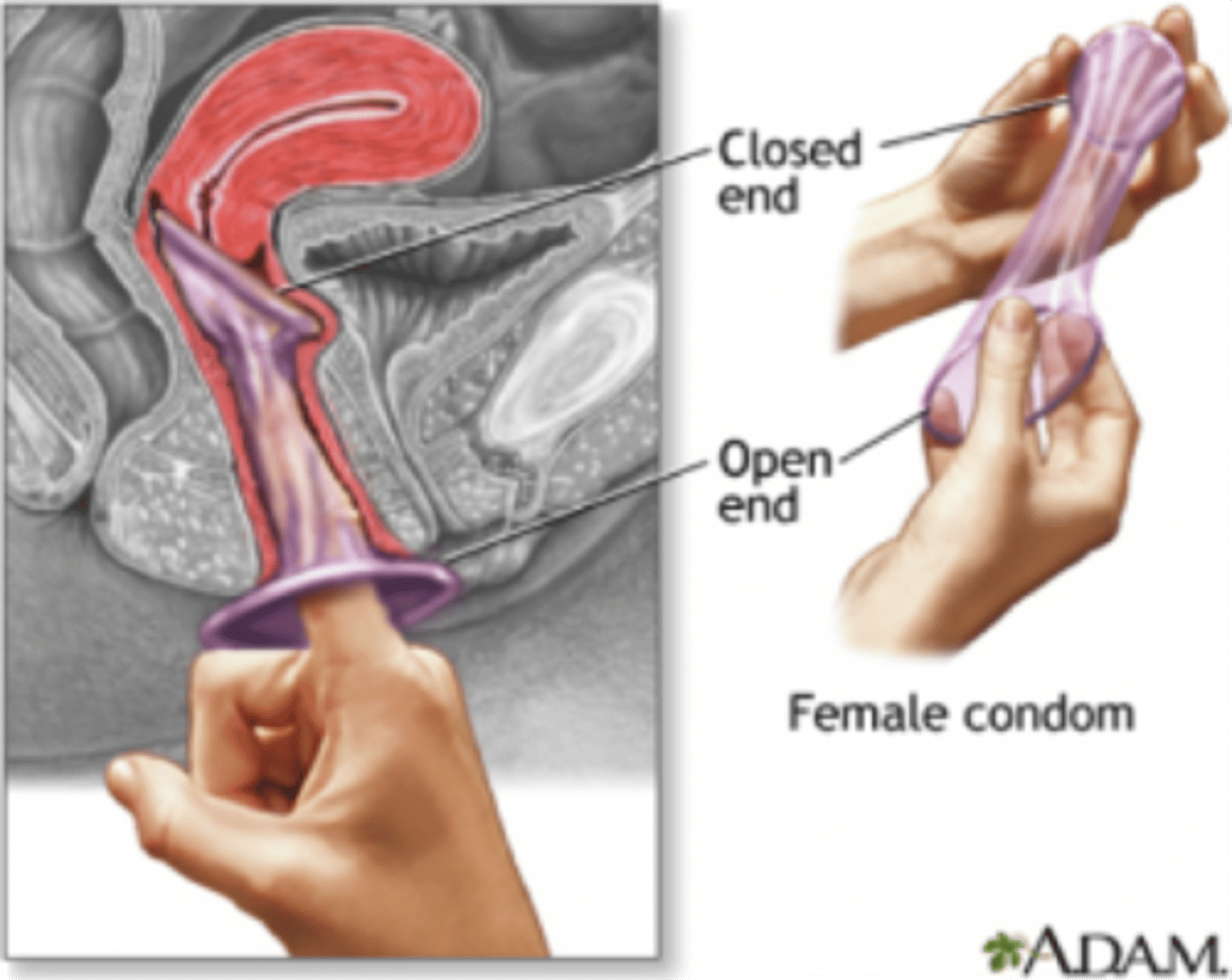
Diaphragm
Bigger and looks like a bowl
-Non-hormonal
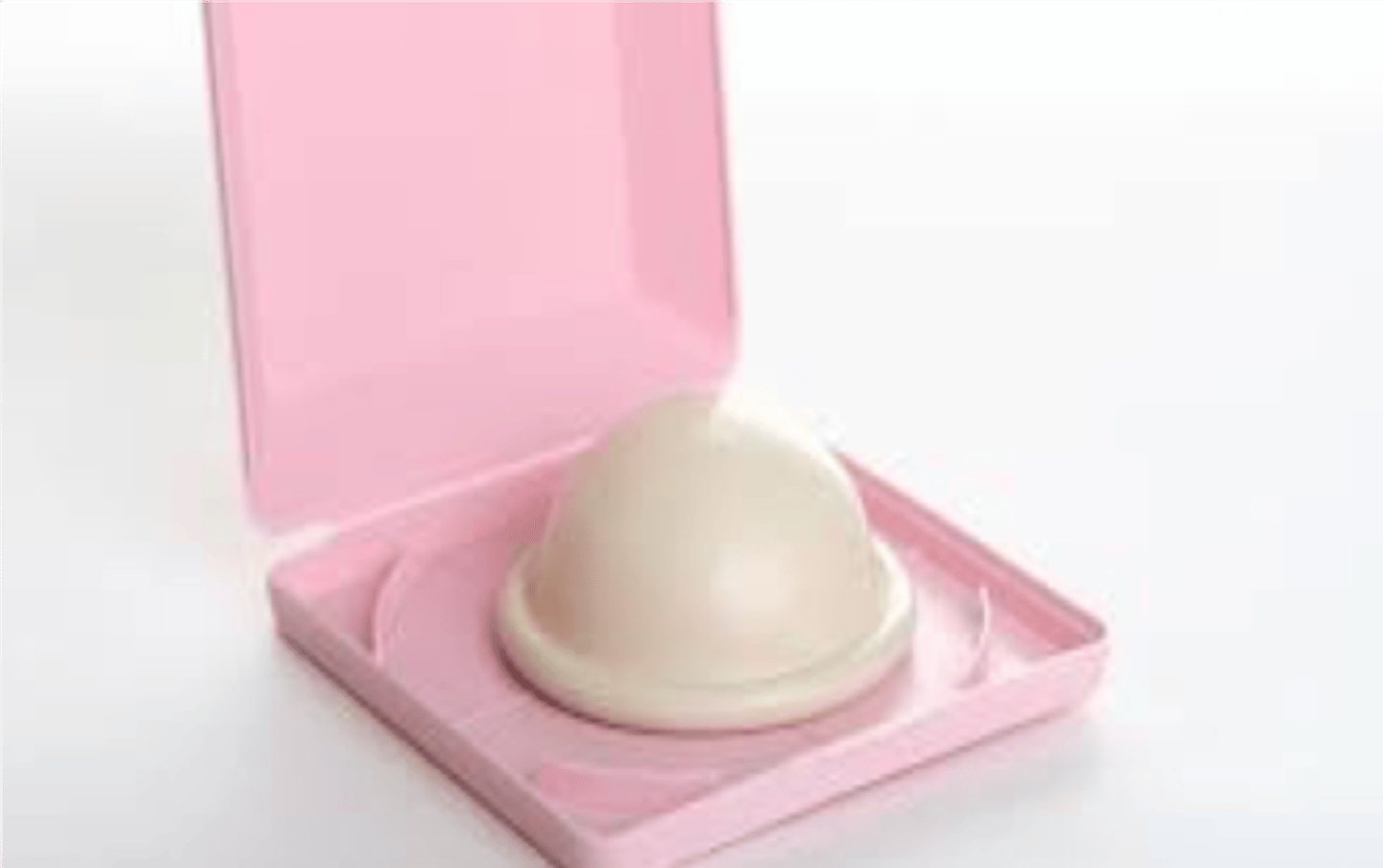
Cervical cap
Smaller and looks like a bottle top
-Non-hormonal
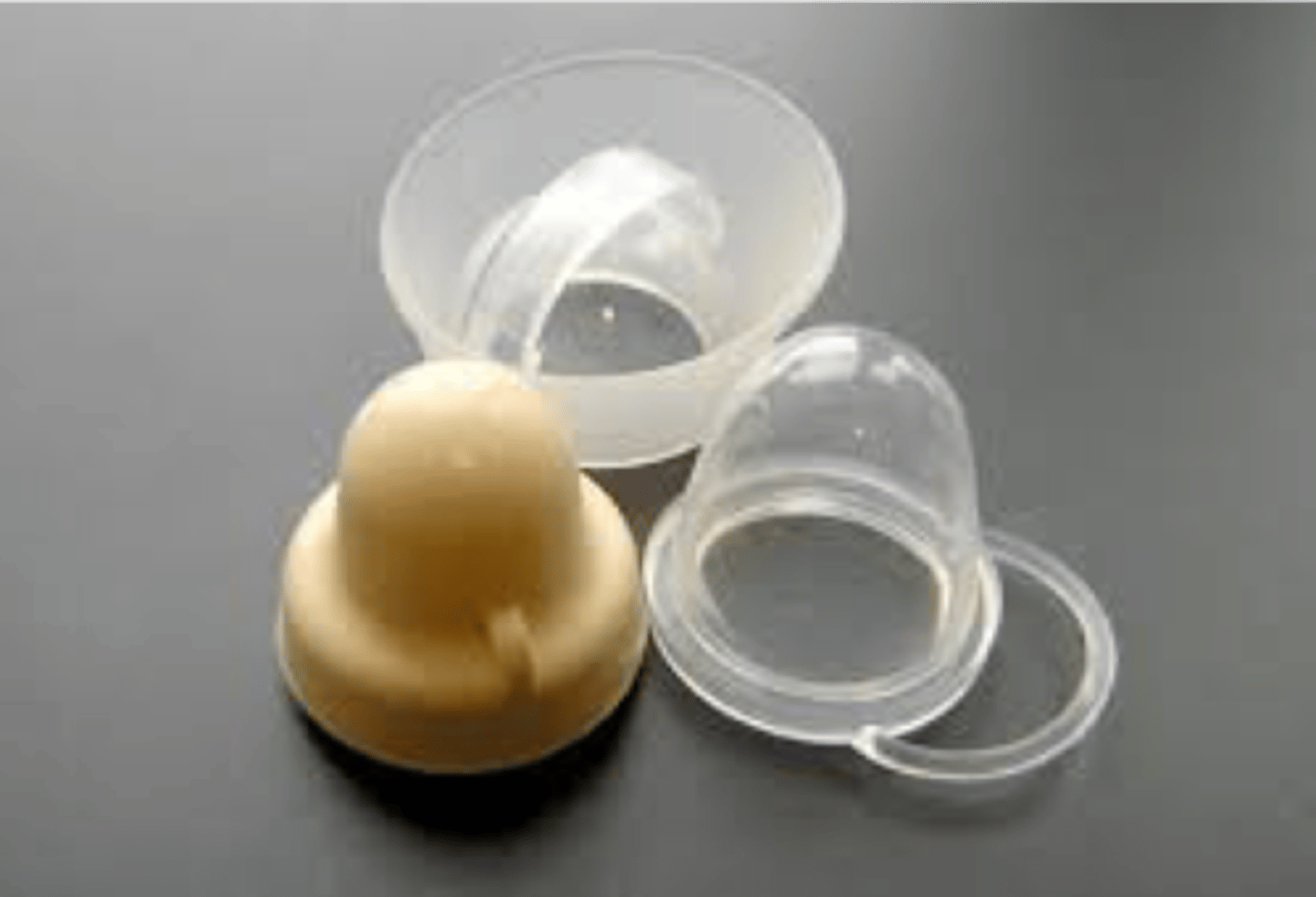
Sponge contraception
A sponge structure similar to cervical cap
-Non-hormonal
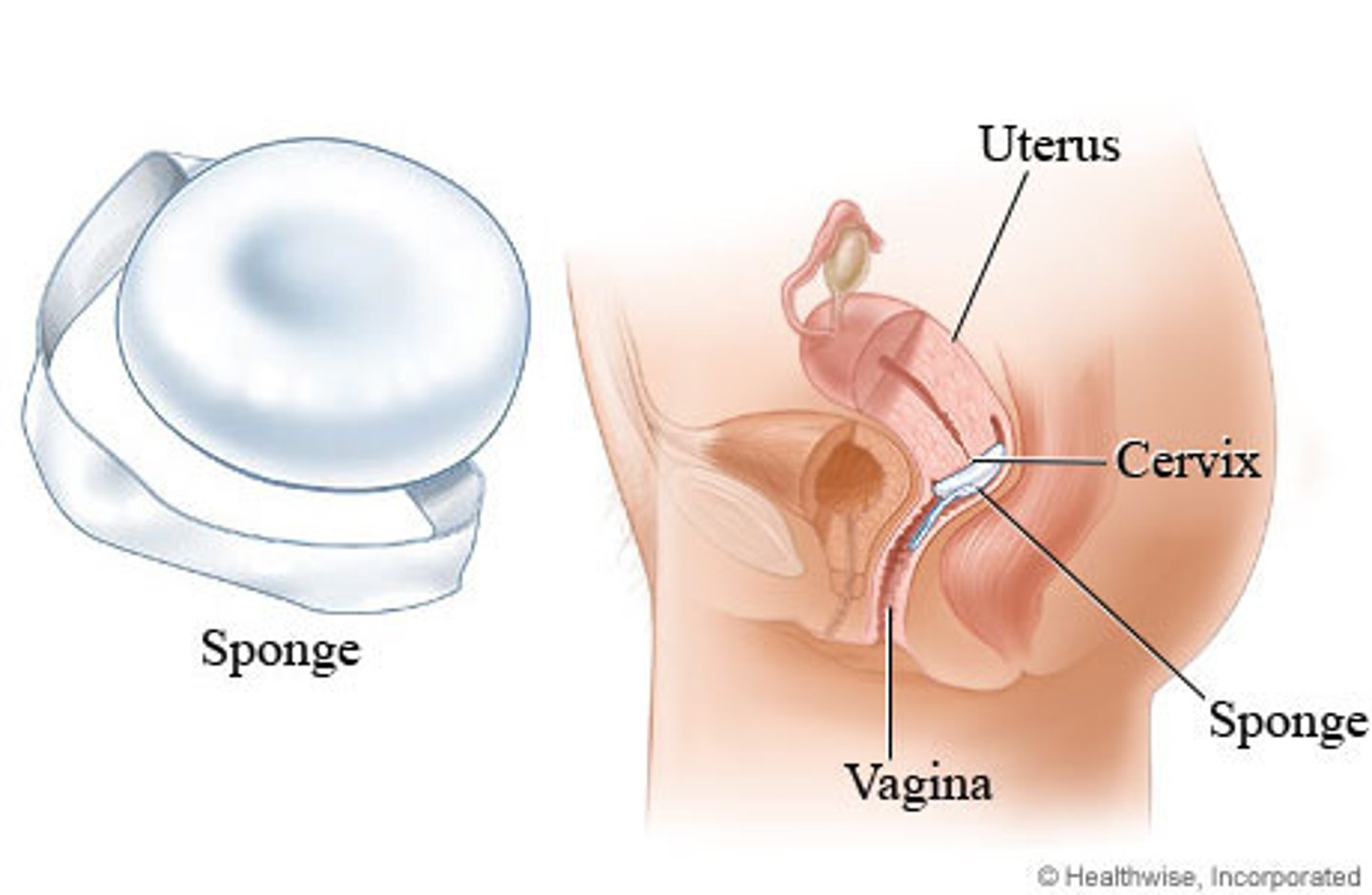
Non-hormonal Intrauterine device (IUD)
Placed in the uterus by a physician prevents egg and sperm from fusing
-Non-hormonal
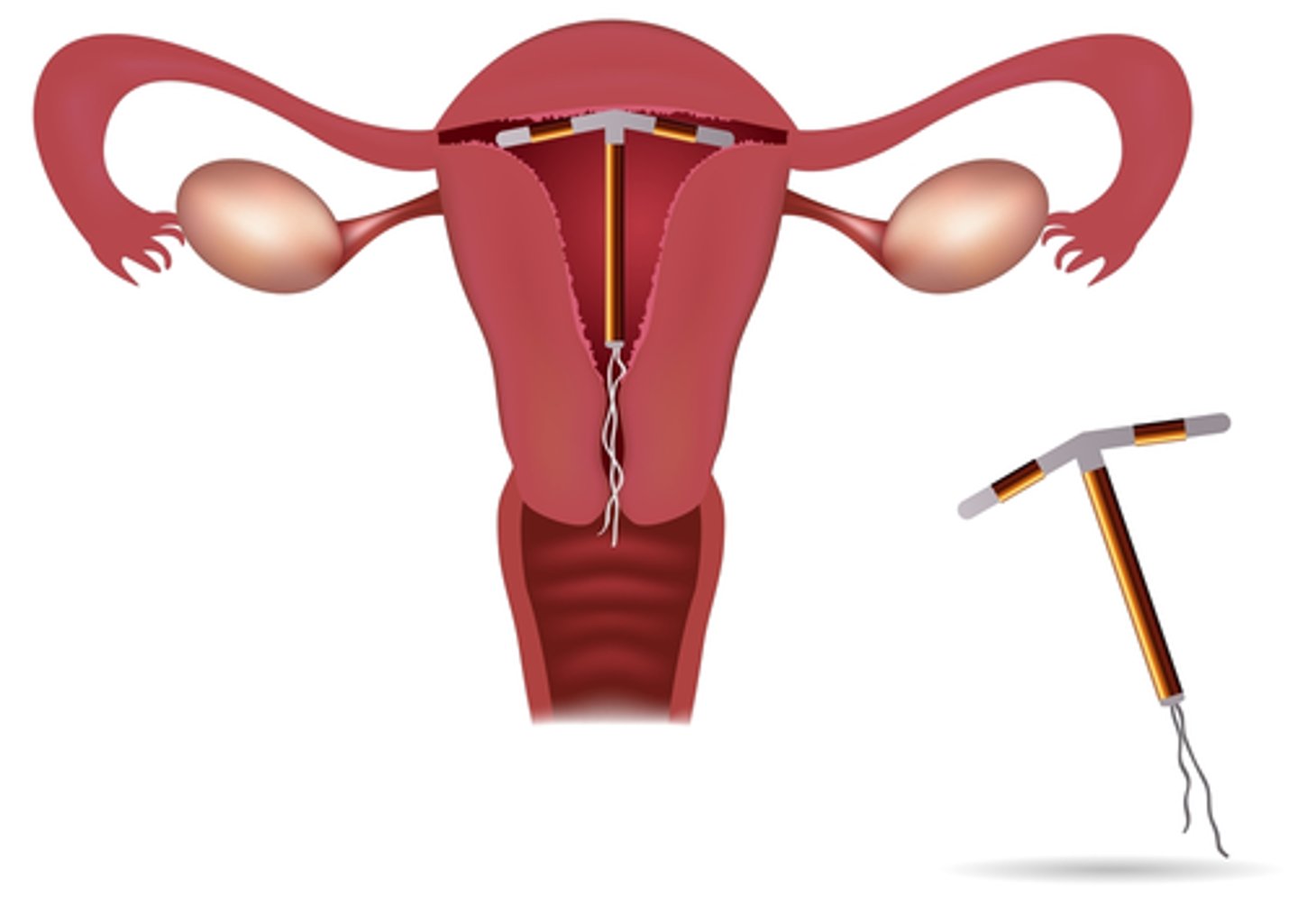
Spermicide
Condoms and diaphragms are often full with it
-Non-hormonal
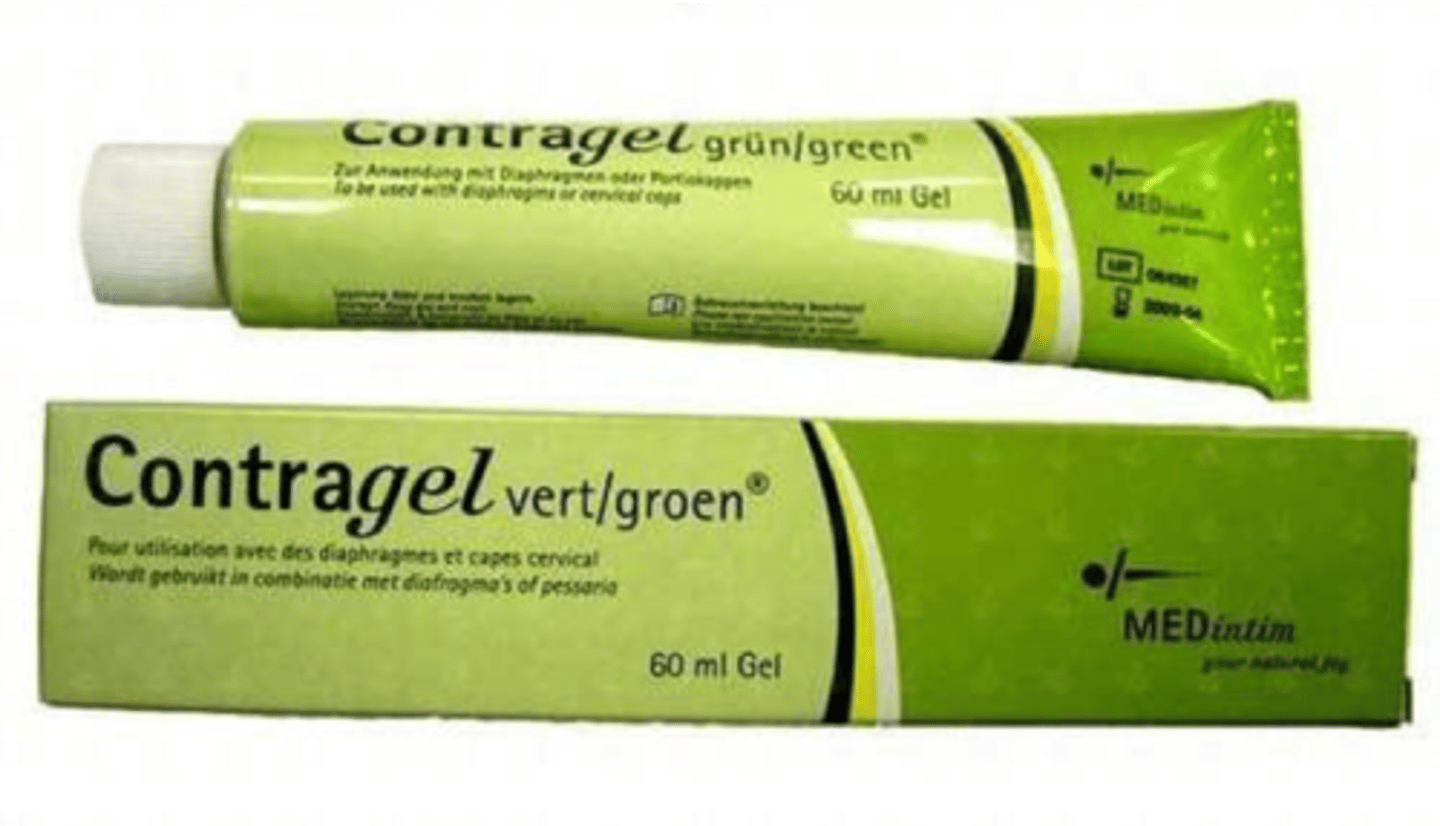
oral contraceptives
the "pill"
-Hormonal
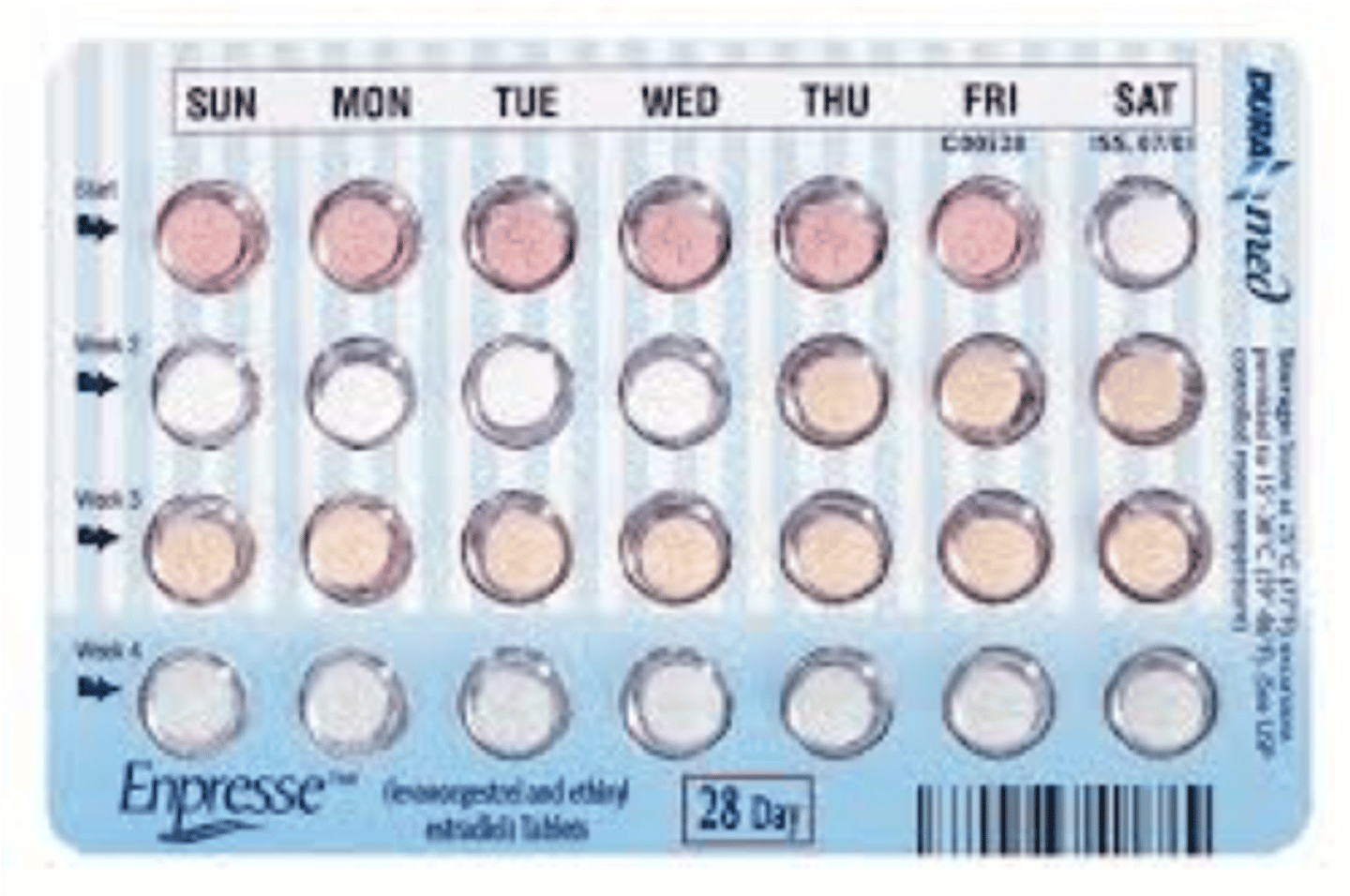
Injection
Depo-pavera
-Hormonal
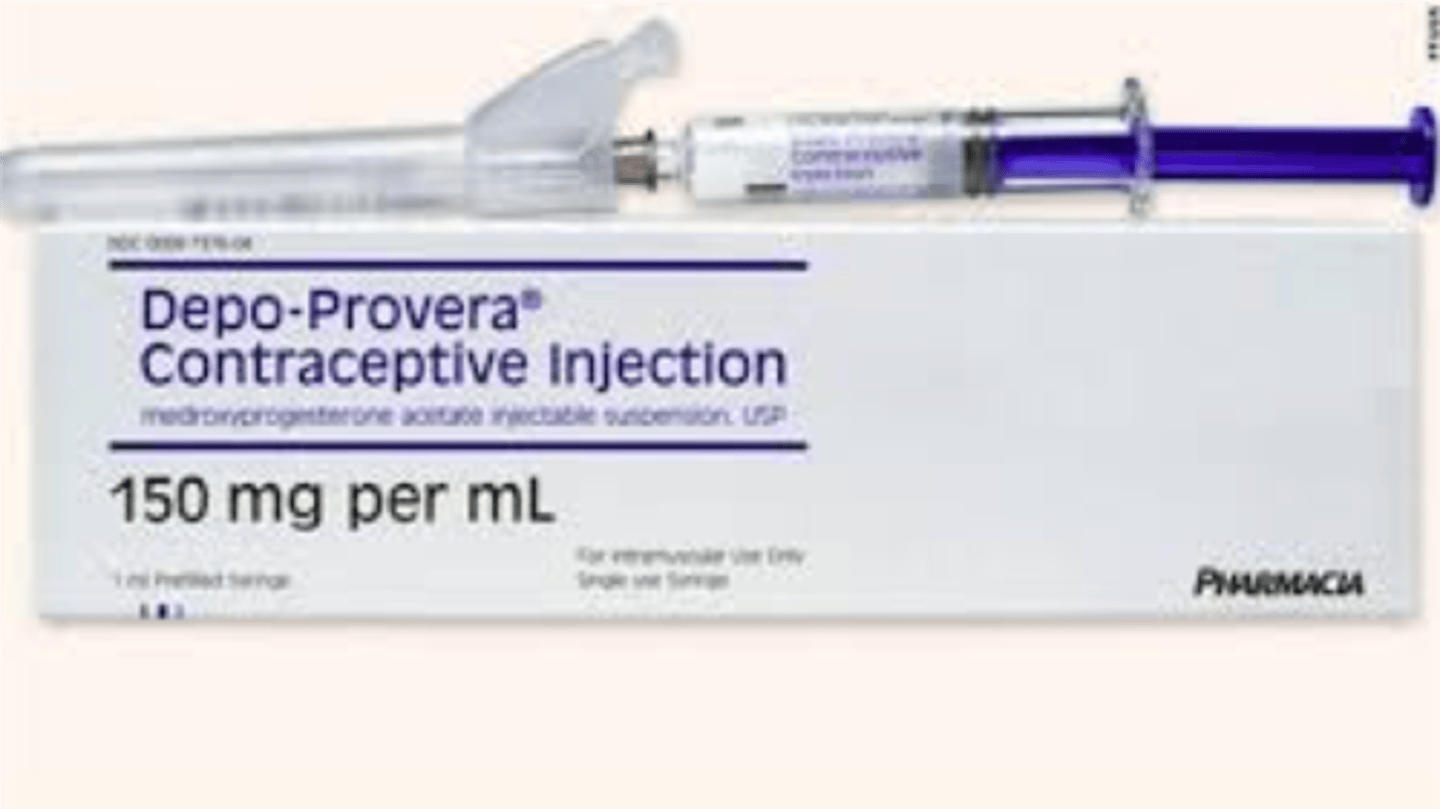
Patch
-Hormonal
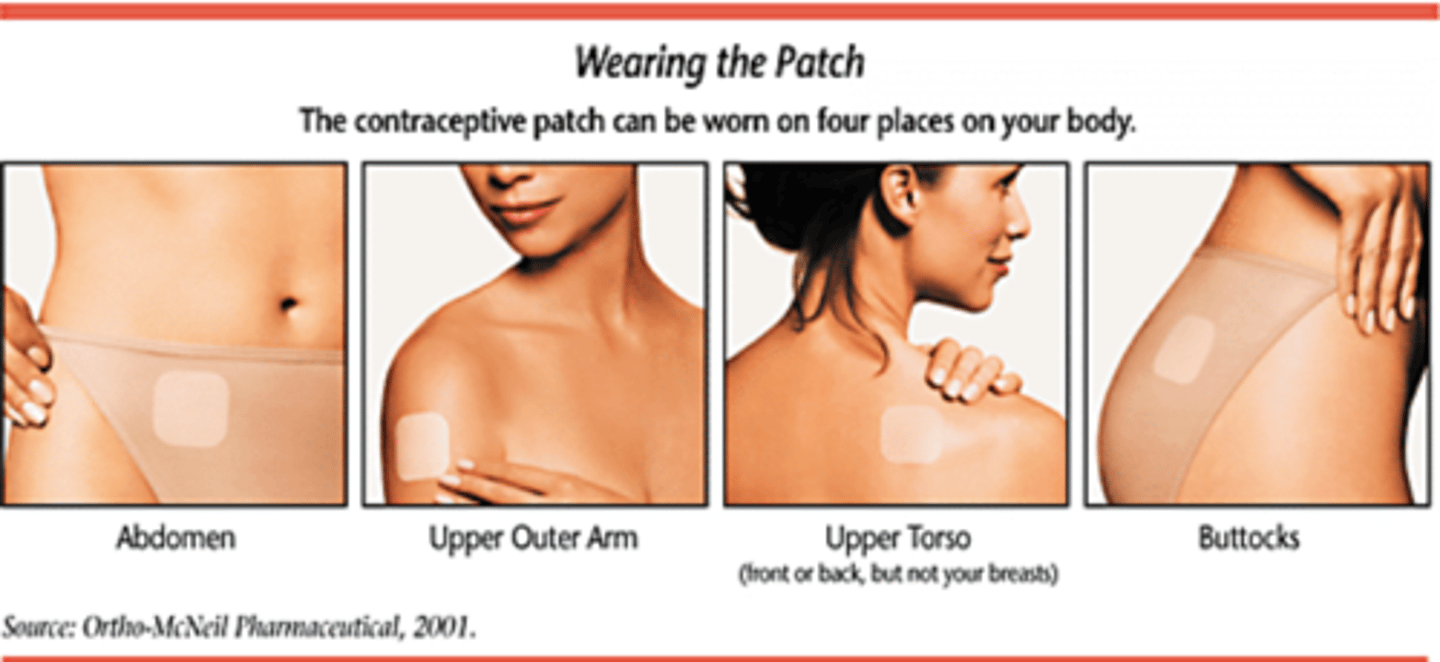
Progestin implant
in the arm
-Hormonal
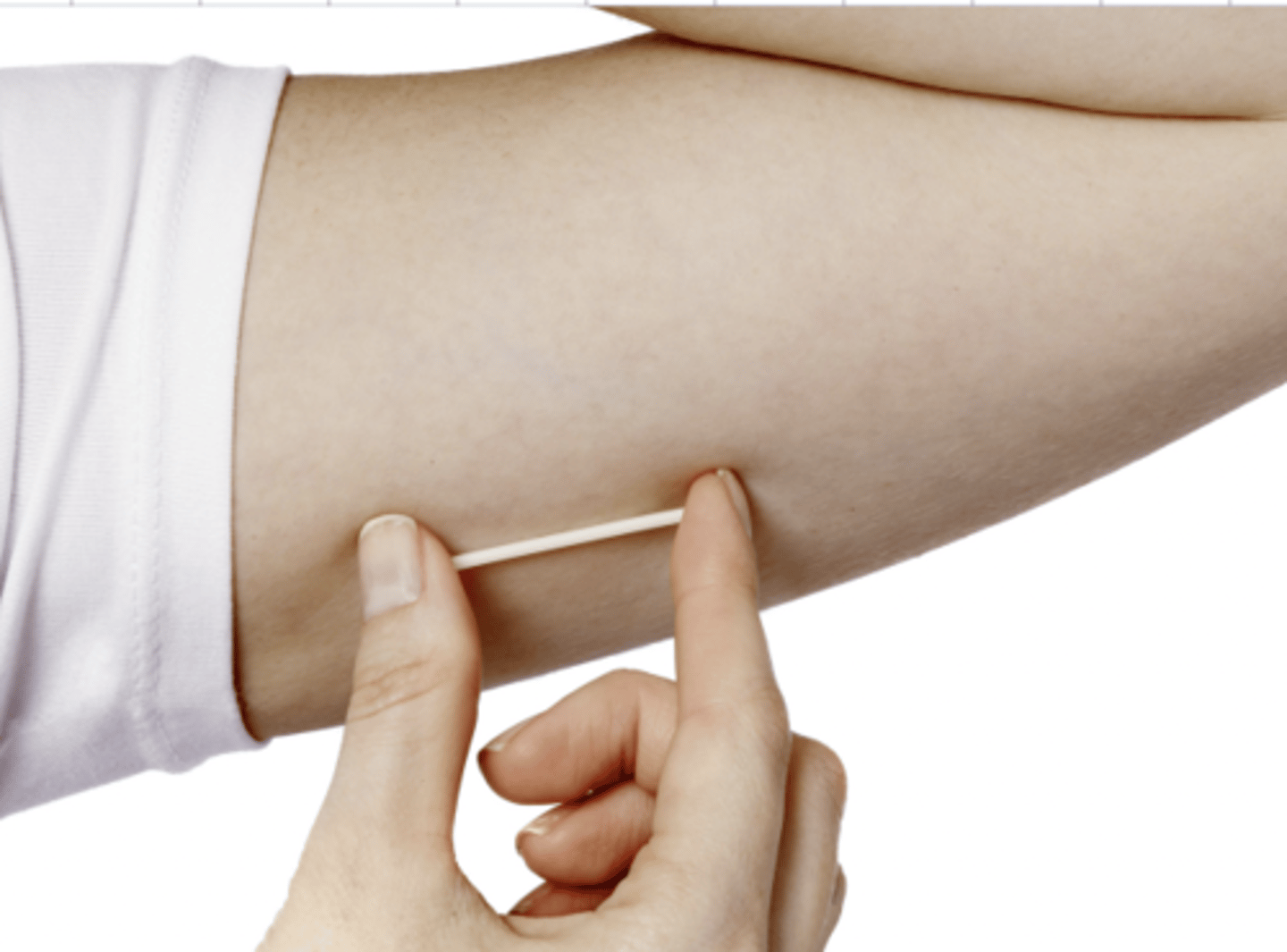
Vaginal ring
ring that releases hormones
-Hormonal
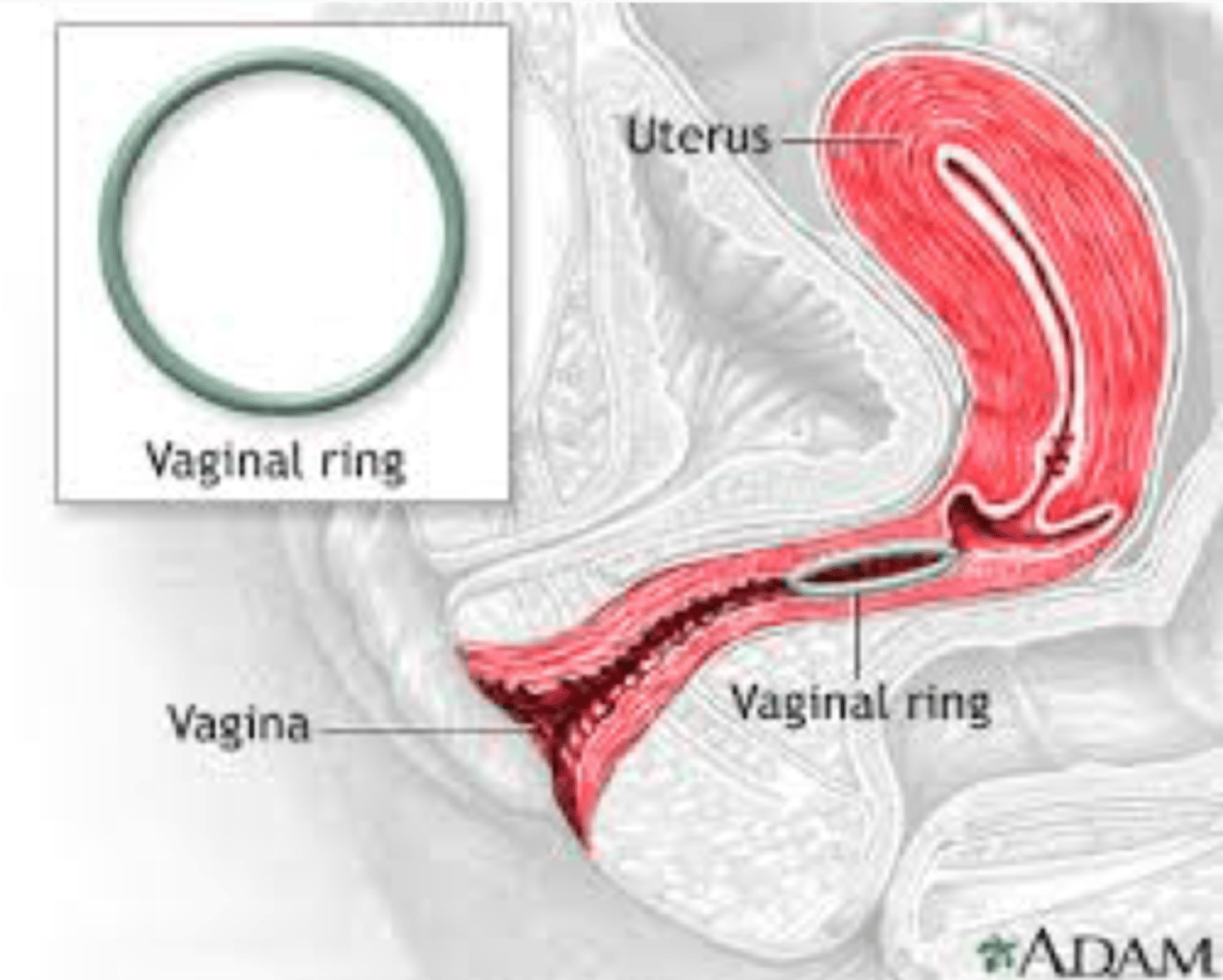
Intrauterine device (hormonal)
IUD that ejects hormones
-Hormonal
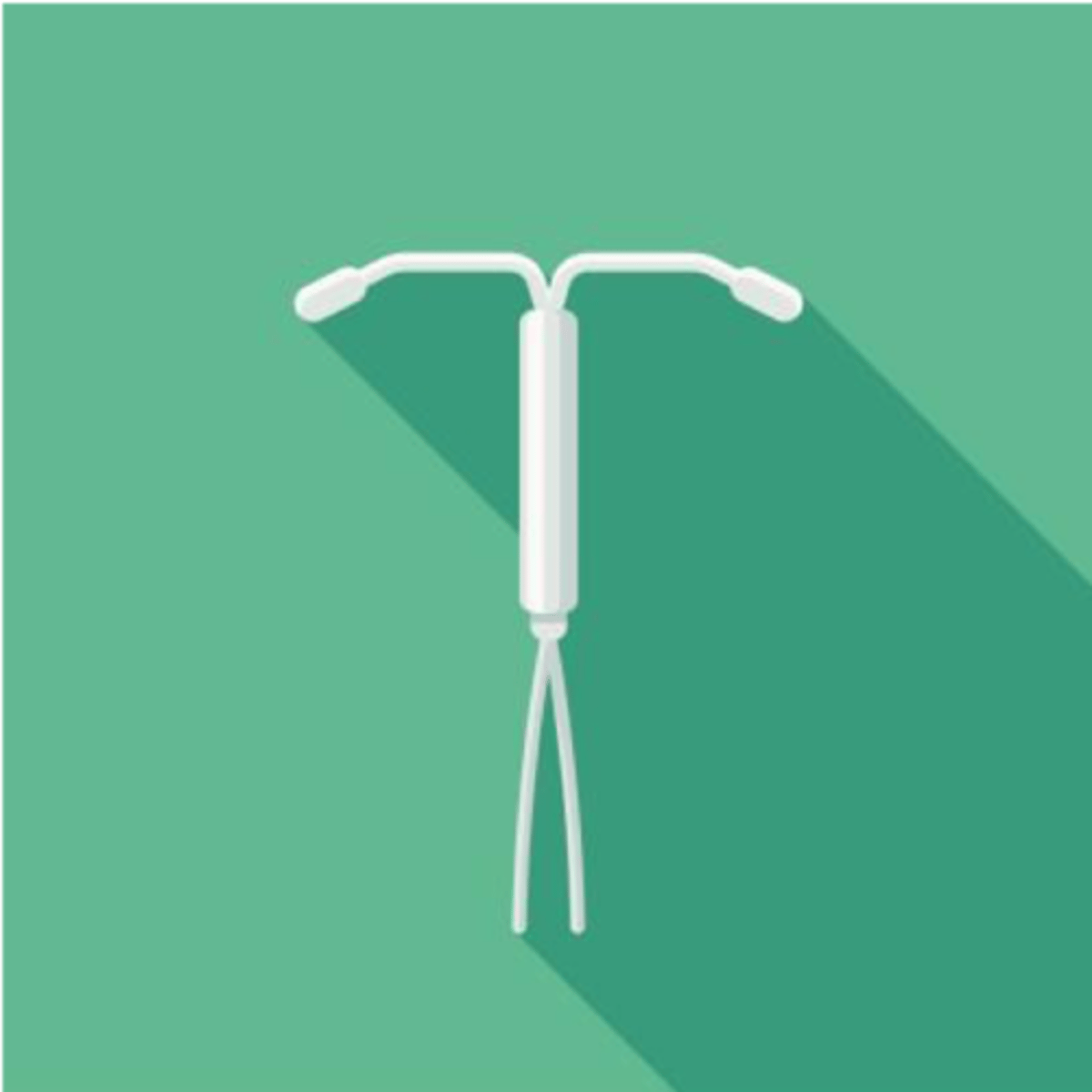
Vasectomy
surgical procedure that removes all or part of the deferens deferns that prevents sperm to travel through the urethra
-Permanent method
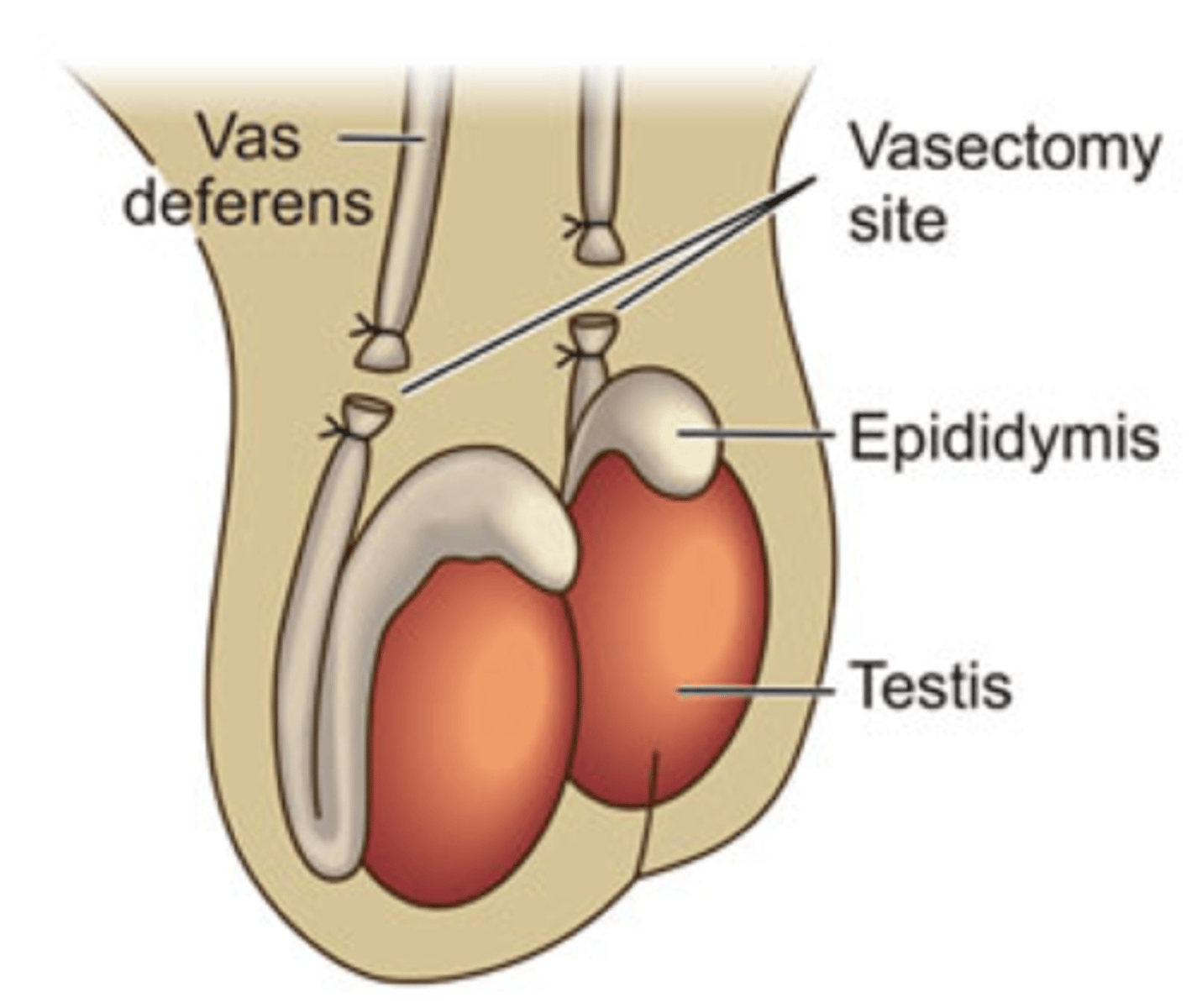
Tubal ligation
blocking or cutting of the fallopian tubes to prevent fertilization from occurring
-Permanent method
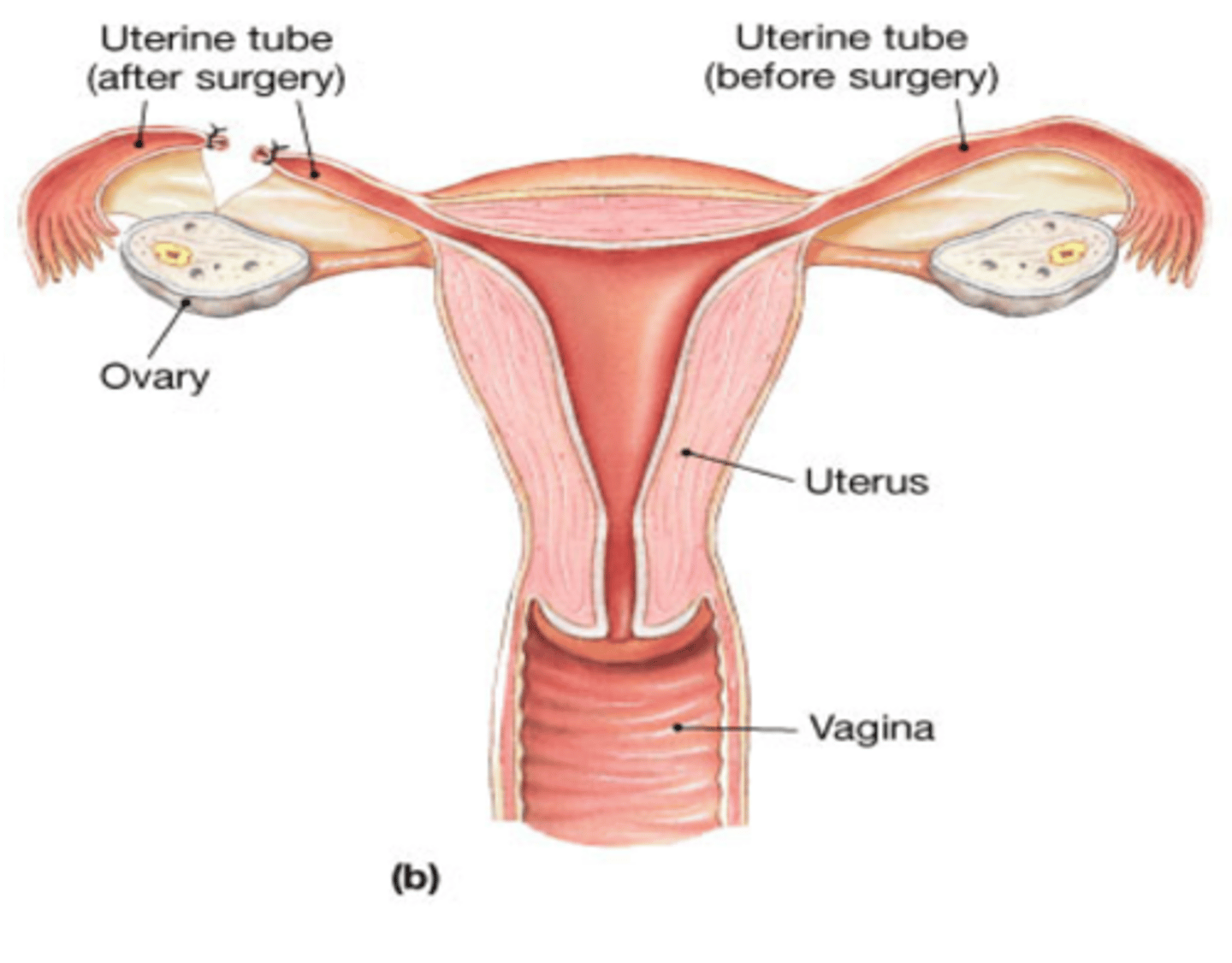
intra-uterine tube coil placement
Results in the coil producing scar tissue in the uterine tubes that prevents the release of eggs
-Permanent method
